Search results
Projects
DCP HDR Working Group on Wellbeing and Belonging
Understanding HDR Wellbeing in and post COVID-19

Over the past few years, studies internationally have identified the power of the arts to improve wellbeing and health. At RMIT, we specialise at arts-based, codesign and ethnographic approaches to address social, ecological and health challenges. The DCP HDR Working Group on Wellbeing and Belonging are developing short term and long term projects around understanding HDR wellbeing and developing human-centred approaches to digital innovation. It seeks to address issues around the 2020 crisis (bushfires, climate change and COVID-19) and how we can empower HDRs for sustaining futures.
Within the working group, there is expertise in terms of ethnographic, user-experience methods, co-design frameworks, digital media curriculum and evaluation. This working group is researching the role of social and digital innovation for addressing impact of social isolation and associated emotional distress on wellbeing of HDR students during the COVID-19 crisis. The findings of this study will be deployed for future strategies for HDR students wellbeing.
If you would like to get involved with this project, fill out the form below or reach out to project leaders via the contact info provided alongside each bio.
People
Anne Harris
Associate Professor and Principal Research Fellow, Design and Social Context
School: Education
+61 3 9925 4459
RMIT staff profile
anne.harris@rmit.edu.au
Dr Anne M. Harris, PhD is an Associate Professor and Vice Chancellor’s Principal Research Fellow at RMIT University, and an Australian Research Council Future Fellow (2017 – 2021) studying intercultural creativity. Anne is an Honorary Research Fellow at University of Nottingham (UK) and an Adjunct Professor at Monash University (Australia).
Their research is in the areas of gender, creativity, diversity, performance and emerging digital ethnographies. Anne is a native New Yorker and has worked professionally as a playwright, teaching artist and journalist in the USA and Australia. They have authored or co-authored over 60 articles and 13 books on creativity, arts, and non-dominant culture formations, the latest being Queering Families/Schooling Publics: Keywords (with Stacy Holman Jones, Sandra Faulkner, and Eloise Brook, Routledge 2017). Anne is the creator and series editor of the Palgrave book series Creativity, Education and the Arts, and recently completed an Australian Research Council DECRA on the commodification of creativity.
Catherine Gomes
Associate Professor
School: Media and Communication
Catherine Gomes is an Associate Professor in RMIT University’s School of Media and Communication. Catherine is an ethnographer whose work contributes to the understanding of the evolving migration, mobility and digital media nexus. As a migration and mobility scholar, Catherine specialises on the social, cultural and communication spaces of transient migrants, especially international students, their wellbeing, their social groups and their digital engagements. Catherine’s work covers the themes of identity, ethnicity, race, memory and gender. She is a specialist on the Asia-Pacific with Australia and Singapore being significant fieldwork sites. Catherine has experience in mixed methods and interdisciplinary research.
Catherine’s work on transient migration and digital technology is advancing work on migration and mobility because of the transient-digital nexus she pioneers. Moreover, as founding editor of Transitions: Journal of Transient Migration Migration (Intellect), editor of the Culture, Media and Communication in Migrant Societies book series (Amsterdam University Press) and lab leader of the Migration and Digital Media Research Lab housed in the Digital Ethnography Research Centre (DERC), Catherine facilitates intellectual discussions with the aim of generating practical outcomes to address and assist policymakers and stakeholders interested in transient migration and international mobility.
Larissa Hjorth
Distinguished Professor and Director, Design and Creative Practice
School: Enabling Capability Platforms
Larissa Hjorth is a digital ethnographer, artist, Distinguished Professor and director of the Design & Creative Practice ECP platform at RMIT University. With Professor Heather Horst, she co-founded the Digital Ethnography Research Centre (DERC). Previously, Hjorth was Deputy Dean, Research & Innovation, in the School of Media & Communication (2013−2016). Hjorth served on the inaugural Australian Research Council (ARC) Engagement & Impact Pilot study assessment panel for humanities and creative practice.
Hjorth studies the socio-cultural dimensions of mobile media and play practices in the Asia-Pacific region with an emphasis on interdisciplinary, collaborative and cross-cultural approaches. She has published a dozen co-authored books, edited over a dozen Handbooks/Companions and has over 40 journal articles.
More recently, Hjorth’s work has become concerned with how we can bring creative, social and design solutions to the growing ageing populations and, in turn, how we might consider scenarios of what it means to die well. She is also studying how our “more-than-human” companions can teach us about new media in everyday life. Hjorth’s last book, Haunting Hands (Oxford Uni Press) looked at how mobile media is being deployed in situations of grief and trauma, her previous book explored how art practice can teach us new acumen into the climate change debate.
Hjorth’s books include Haunting Hands (with Cumiskey 2017), Screen Ecologies (with Pink, Sharp & Williams 2016), Digital Ethnography (Pink et al. 2016) Mobile Media in the Asia-Pacific (2009), Games & Gaming (2010), Online@AsiaPacific (with Arnold 2013), Understanding Social Media (with Hinton 2013), and Gaming in Locative, Social and Mobile Media (with Richardson 2014).
Ingrid Richardson
Professor
School: Media and Communication
Professor Ingrid Richardson has been teaching, supervising and researching in the fields of digital media, mobile media and games for over twenty years. She has a broad interest in the human-technology relation and has published widely on the phenomenology of games and mobile media, digital ethnography and innovative research methods, the relation between technology use and wellbeing, and the cultural effects of urban screens, wearable technologies, virtual and augmented reality, remix culture and web-based content creation and distribution. Ingrid has led or co-led 14 funded research projects, the most recent being an ARC DP [Games of Being Mobile] with Larissa Hjorth. She is contributing co-editor of Studying Mobile Media (Routledge, 2011) and co-author of Gaming in Social, Locative and Mobile Media (Palgrave, 2014), Ambient Play (MIT, 2020), Understanding Games and Game Cultures (Sage, 2020), Exploring Minecraft: Ethnographies of Play and Creativity (Palgrave, forthcoming), and Mobile Media and the Urban Night (Palgrave, forthcoming). Ingrid brings ten years’ experience in university-level HDR management and during this time has actively championed and supported creative methods and practice-led postgraduate research. Over the past five years she has also developed a passion for teaching critical web literacy skills to undergraduate students across all disciplines.
Natalie Hendry
VC Research Fellow
School: Media and Communication
Natalie Hendry is a Vice Chancellor’s Postdoctoral Fellow in the School of Media and Communications. Her research explores everyday social media and digital technology practices in the context of critical approaches to education, mental health, media, wellbeing, youth studies and policy. This brings together her experience prior to academia, working in community education, secondary schools and hospital settings, and consulting for health organisations and industry. Using digital ethnography and creative workshop methods, her postdoctoral research explores emerging and potential online opportunities to enhance digital outreach and media-based support for young people whose parents or adult family members are experiencing mental ill-health.
Renata Kokanovic
Convener, The HEALTH Network; Professor
School: Global, Urban & Social Studies
Professor Renata Kokanovic’s works at the intersections of health, society and medicine, with a particular focus on interdisciplinary mental health research.She combines empirical research with interdisciplinary theoretical and methodological scholarship while collaborating with industry partners and health care users to facilitate greater understanding of lived experiences of health and illness.
She co-founded Healthtalk Australia, a digital repository of health and illness narrative accounts designed to support people experiencing ill health, and inform health and social care delivery and policy.
Ruth De Souza
VC Research Fellow
School: School of Art
Dr Ruth De Souza (FACN) is a Vice-Chancellor’s Fellow at RMIT, based in the School of Art and DCP Research Platform. She is a nurse, academic and a community-engaged researcher in gender, race, health and digital technologies. Ruth’s Fellowship will engage health professionals in finding new ways to understand, co-design and implement sustainable cultural safety initiatives in a range of health contexts in response to health inequities.
Prior to moving to Australia in 2013, Ruth worked at AUT University where she taught in the School of Nursing, led the Bachelor of Health Promotion, and was a Senior Research Fellow at the Centre for Asian and Migrant Health Research. Since her arrival in Australia, Ruth has undertaken a wide range of roles, including leading an undergraduate nursing program at Monash University’s Berwick campus; spearheading a unique community-engaged joint research appointment with North Richmond Community Health exploring how wearables and other digital technologies are perceived by people from culturally and linguistically different backgrounds and co-ordinating an interdisciplinary Data Systems and Society Research Network across the University of Melbourne. Ruth has also investigated the applicability of cultural safety in Australia, working closely with The Congress of Aboriginal and Torres Strait Islander Nurses and Midwives (CATSINaM), presenting at their National Professional Development Conferences and delivering training on cultural safety. She has also undertaken a two-year cultural safety project with cohealth (a not-for-profit community health organisation) and Our Watch who work for the primary prevention of violence against women and their children.
Smartphone use during a crisis
Finding and managing information, emotions and networks in times of crisis
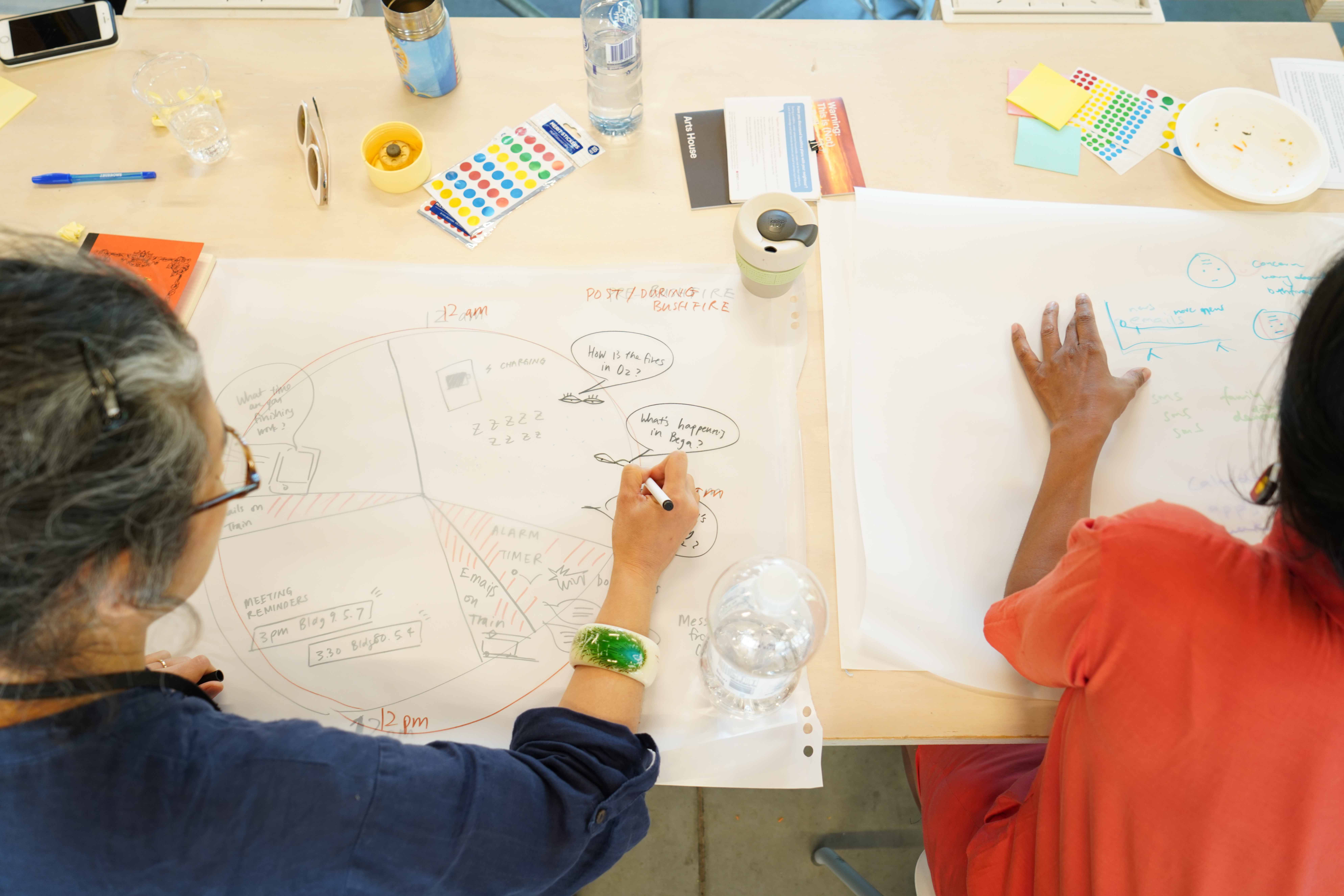
These workshops explored how, as smartphone users, participants were using mobile and non-mobile media to find and manage
information, emotions and networks during the 2019 – 2020 Australian summer bushfire crisis.
Using 3 creative codesign methods, we mapped the key themes, common feelings and practices that emerged during the group discussions. The exercises, and subsequent mapping, generated discussions about key practices and perceptions of how individuals and their communities care during times of crisis. The following preliminary findings emerged:
- Tactics of care
- Care-at-a-distance
- Care literacies
- Direct and indirect affective witnessing
Read the Workshop Summary Report to find out more.
If you would like to get involved with this project, fill out the form below or reach out to project leaders via the contact info provided alongside each bio.
People
Yoko Akama
Associate Professor, Communication Design Cluster
School: Communication Design
+61 3 9925 2805
RMIT staff profile
yoko.akama@rmit.edu.au
Yoko Akama is a design researcher at RMIT University, Australia. She co-leads the Design and Social Innovation in Asia-Pacific network and Design+Ethnography+Futures research program at RMIT.
Her Japanese heritage has embedded a Zen-informed relational practice to carve a ‘tao’ (path) in design and has published extensively on this topic. This practice is shaped by working with regional communities in Australia in strengthening their resilience for disaster preparedness, and with Indigenous Nations enact their sovereignty and self-determination. She is an Adjunct Fellow of a ecosystem innovation studio, Re:public Japan, and Visiting Fellow at the Centre of Excellence in Media Practice, Bournemouth University. She serves on several editorial boards of international journals, and conference review committees. She is a recipient of several major research grants in Australia and the UK and winner of the prestigious Good Design Australia Awards in 2014.
Caitlin McGrane
School: Media and Communication
Caitlin McGrane is a feminist researcher and activist. Her doctoral research investigates how women’s feelings about their smartphone uses and practices can help challenge normative and misogynistic notions of women’s communications. She leads Gender Equity Victoria’s (GEN VIC) ‘Enhancing Online Safety for Women’ project advocating for better support and conditions for women working in media. In 2018 – 2019 she worked with GEN VIC to design a toolkit and a series of videos encouraging prosocial bystander actions on social media. She has worked on projects with the Victorian Trades Hall Council Women’s Team building an online resource to supplement their Gender-Based Violence in the Workplace training package. Her previous research has explored how witnessing anti-feminist harassment can negatively affect individuals’ willingness to publicly identify as feminist and participate in online spaces.
Larissa Hjorth
Distinguished Professor and Director, Design and Creative Practice
School: Enabling Capability Platforms
Larissa Hjorth is a digital ethnographer, artist, Distinguished Professor and director of the Design & Creative Practice ECP platform at RMIT University. With Professor Heather Horst, she co-founded the Digital Ethnography Research Centre (DERC). Previously, Hjorth was Deputy Dean, Research & Innovation, in the School of Media & Communication (2013−2016). Hjorth served on the inaugural Australian Research Council (ARC) Engagement & Impact Pilot study assessment panel for humanities and creative practice.
Hjorth studies the socio-cultural dimensions of mobile media and play practices in the Asia-Pacific region with an emphasis on interdisciplinary, collaborative and cross-cultural approaches. She has published a dozen co-authored books, edited over a dozen Handbooks/Companions and has over 40 journal articles.
More recently, Hjorth’s work has become concerned with how we can bring creative, social and design solutions to the growing ageing populations and, in turn, how we might consider scenarios of what it means to die well. She is also studying how our “more-than-human” companions can teach us about new media in everyday life. Hjorth’s last book, Haunting Hands (Oxford Uni Press) looked at how mobile media is being deployed in situations of grief and trauma, her previous book explored how art practice can teach us new acumen into the climate change debate.
Hjorth’s books include Haunting Hands (with Cumiskey 2017), Screen Ecologies (with Pink, Sharp & Williams 2016), Digital Ethnography (Pink et al. 2016) Mobile Media in the Asia-Pacific (2009), Games & Gaming (2010), Online@AsiaPacific (with Arnold 2013), Understanding Social Media (with Hinton 2013), and Gaming in Locative, Social and Mobile Media (with Richardson 2014).
The Spatial Capability Cluster at RMIT (SCCAR)
Phase 2
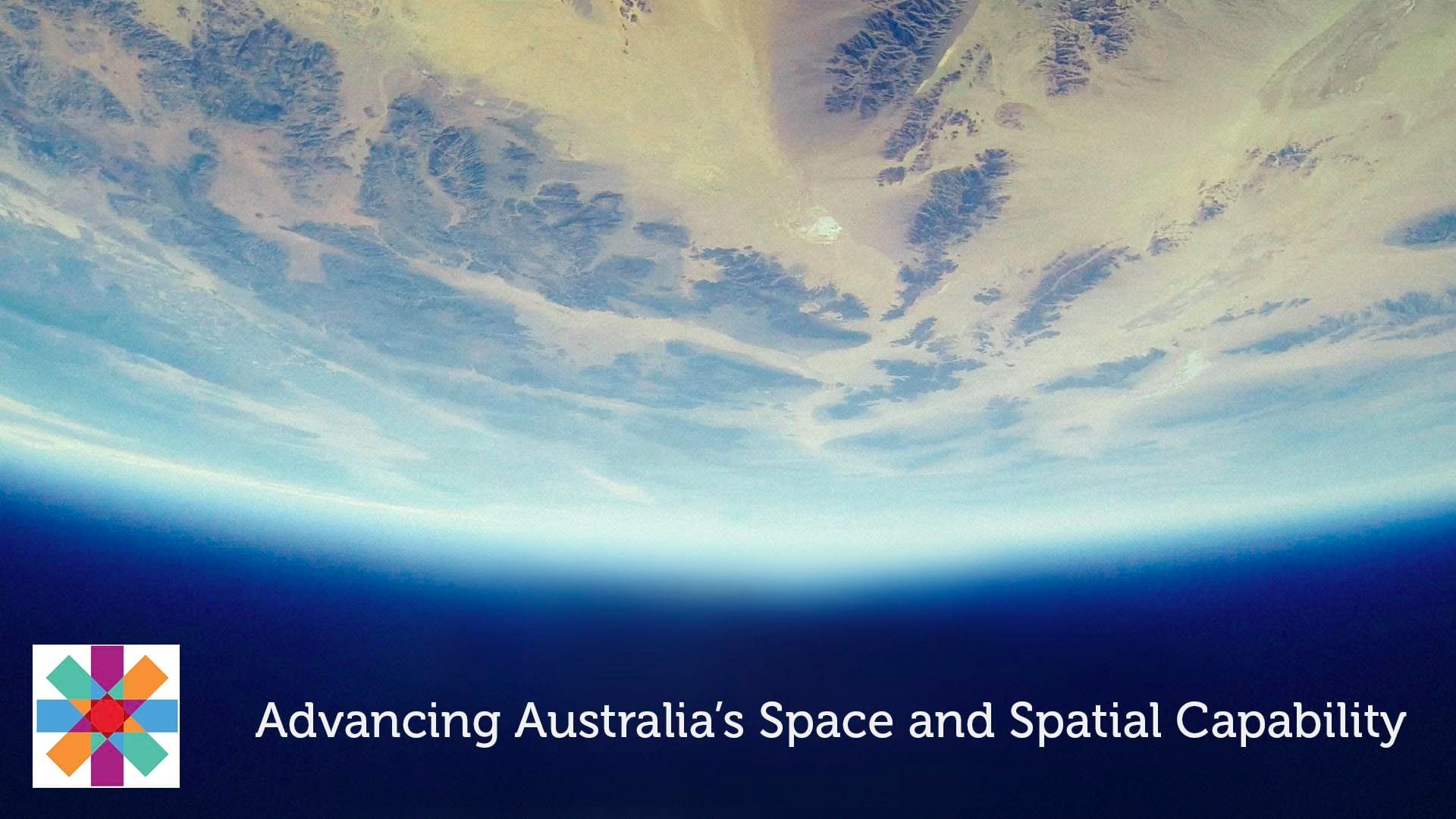
The SASCCAR project is working to establish a “Space and Spatial Capability Cluster” at RMIT. The cluster aims to provide a sustainable and interdisciplinary community of practice in “space” and “spatial”, bringing together spatial experts across RMIT University, and supporting early-career researchers and HDR students working in the spatial sciences. The cluster aims to enhance collaboration, increase the visibility of RMIT’s world-class expertise in spatial knowledge, and ultimately support relevant applications to large interdisciplinary funding schemes, including CRCs and Centres of Excellence.
Phase 2 of the SASCCAR project saw skills development workshops on mapping with Tableau; Frontier SI workshop; Workshop with Mark McMillan on Indigenous Knowledge of Place; Joint workshop with the Sir Lawrence Wackett Centre and defence industry (Textron) on major Next Gen Technology Fund application; as well as a presentation at the 2019 Engaging For Impact Event on Advancing Space and Spatial Capabilities with Dr Amanda Caples.
Space is a USD$345 billion global industry which has doubled over the previous decade, with strong growth expected to continue in the medium term. Australia’s Space and Spatial industries are undergoing a rapid change and growth including everything from rockets, satellites and sensors, through to the specialists who derive insights from space based information such as location data and satellite imagery. These diverse technologies are having more impact than ever across Australia’s economy, particularly our Agricultural, mining, environmental, health, transport, defence, and built environment industries.
You can find out more about the SASCCAR project here.
If you would like to get involved with this project, fill out the form below or reach out to project leaders via the contact info provided alongside each bio.
People
Matt Duckham
Professor
School: Geospatial Science
Matt Duckham is a Professor of Geospatial Sciences at RMIT University. At RMIT, he has occupied a number of senior leadership roles including: Acting Dean STEMM Diversity and Inclusion, Associate Dean of Geospatial Science, and Deputy Head of the School of Mathematical and Geospatial Sciences, Science Director for the CRC for Spatial Information (CRCSI) Rapid Spatial Analytics Program. Prior to joining RMIT, Matt was Professor in Geographic Information Science within the department of Infrastructure Engineering at the University of Melbourne, when he also held a visiting Professor position and the University of Greenwich.
Matts research focuses on the area of Geographic Information Science, particularly distributed and robust computation and visualisation with uncertain spatial and spatiotemporal information, within the domain of mobile, location aware and sensor enabled systems. He has taught a range of undergraduate and postgraduate courses in connection with spatial computing, in particular, spatial visualisation and spatial databases.
COVID frontlines in Australia and New Zealand
Processes, Practices and Perceptions

Australia and New Zealand have each enjoyed a high degree of success in managing outbreaks of COVID 19. Both countries have been early adopters of mask use and contact tracing. The COVID travel bubble organised between Australia and New Zealand speaks to the cultural proximity of the two countries and the shared approaches in tackling the pandemic.
This study seeks to interview participants from across Australia and New Zealand to record their shifting perceptions towards the infrastructural changes and biometrics brought by COVID-19. Specifically, we want to enquire about people’s perceptions and practices of:
• Masks and other PPE use
• Contact tracing via apps, QR codes, pen and paper
• COVID testing and temperature monitoring
• Vaccinations
Our aim is to record the experiences and conditions of participants in New Zealand and Australia to discover how new technologies and practices add new layers of both work and technological awareness to daily routines. We seek to reveal ways of improving techniques of technological delivery and the lives of people that these processes affect.
We welcome all participants and are very keen to hear from a diverse representation of people. We especially welcome older people as well as frontline and essential workers; individuals who, to perform their roles, come into direct contact with the public.
To participate just let us know at the GET INVOLVED link at the bottom of this page.
You can find support with issues related to COVID here if you are in New Zealand, and here if you are in Australia.
PARTICIPANT INFORMATION AND CONSENT FORM
If you would like to get involved with this project, fill out the form below or reach out to project leaders via the contact info provided alongside each bio.
People
Larissa Hjorth
Distinguished Professor and Director, Design and Creative Practice
School: Enabling Capability Platforms
Larissa Hjorth is a digital ethnographer, artist, Distinguished Professor and director of the Design & Creative Practice ECP platform at RMIT University. With Professor Heather Horst, she co-founded the Digital Ethnography Research Centre (DERC). Previously, Hjorth was Deputy Dean, Research & Innovation, in the School of Media & Communication (2013−2016). Hjorth served on the inaugural Australian Research Council (ARC) Engagement & Impact Pilot study assessment panel for humanities and creative practice.
Hjorth studies the socio-cultural dimensions of mobile media and play practices in the Asia-Pacific region with an emphasis on interdisciplinary, collaborative and cross-cultural approaches. She has published a dozen co-authored books, edited over a dozen Handbooks/Companions and has over 40 journal articles.
More recently, Hjorth’s work has become concerned with how we can bring creative, social and design solutions to the growing ageing populations and, in turn, how we might consider scenarios of what it means to die well. She is also studying how our “more-than-human” companions can teach us about new media in everyday life. Hjorth’s last book, Haunting Hands (Oxford Uni Press) looked at how mobile media is being deployed in situations of grief and trauma, her previous book explored how art practice can teach us new acumen into the climate change debate.
Hjorth’s books include Haunting Hands (with Cumiskey 2017), Screen Ecologies (with Pink, Sharp & Williams 2016), Digital Ethnography (Pink et al. 2016) Mobile Media in the Asia-Pacific (2009), Games & Gaming (2010), Online@AsiaPacific (with Arnold 2013), Understanding Social Media (with Hinton 2013), and Gaming in Locative, Social and Mobile Media (with Richardson 2014).
Hugh Davies
Postdoctoral Research Fellow
School: Games
Hugh Davies is an artist, curator and researcher of games and play. His practice explores histories of media devices and cultures of games in the Asia Pacific Region. Awarded a PhD in Art, Design and Architecture from Monash University in 2014, Hugh’s studies in game cultures have been supported with fellowships from Tokyo Art and Space, M+ Museum of Visual Culture and the Hong Kong Design Trust. Hugh is currently a postdoctoral research fellow at RMIT in Melbourne, Australia.
Ingrid Richardson
Professor
School: Media and Communication
Professor Ingrid Richardson has been teaching, supervising and researching in the fields of digital media, mobile media and games for over twenty years. She has a broad interest in the human-technology relation and has published widely on the phenomenology of games and mobile media, digital ethnography and innovative research methods, the relation between technology use and wellbeing, and the cultural effects of urban screens, wearable technologies, virtual and augmented reality, remix culture and web-based content creation and distribution. Ingrid has led or co-led 14 funded research projects, the most recent being an ARC DP [Games of Being Mobile] with Larissa Hjorth. She is contributing co-editor of Studying Mobile Media (Routledge, 2011) and co-author of Gaming in Social, Locative and Mobile Media (Palgrave, 2014), Ambient Play (MIT, 2020), Understanding Games and Game Cultures (Sage, 2020), Exploring Minecraft: Ethnographies of Play and Creativity (Palgrave, forthcoming), and Mobile Media and the Urban Night (Palgrave, forthcoming). Ingrid brings ten years’ experience in university-level HDR management and during this time has actively championed and supported creative methods and practice-led postgraduate research. Over the past five years she has also developed a passion for teaching critical web literacy skills to undergraduate students across all disciplines.
Mark Andrejevic
Professor
School: Media, Film, and Journalism
Mark Andrejevic (Professor, School of Media, Film, and Journalism, Monash University) contributes expertise in the social and cultural implications of data mining, and online monitoring. He writes about monitoring and data mining from a socio-cultural perspective, and is the author of three monographs and more than 60 academic articles and book chapters. He was the Chief Investigator for an ARC QEII Fellowship investigating public attitudes toward the collection of personal information online ($390,000; 2010 – 2014).
Andrejevic has experience conducting both quantitative and qualitative research and is experienced in the focus group and interview methodologies. His work on the personal information project, for example, generated a book, 11 articles and book chapters, and a report on Australian attitudes toward online privacy that was launched by the Federal Privacy Commissioner.
Ruth De Souza
VC Research Fellow
School: School of Art
Dr Ruth De Souza (FACN) is a Vice-Chancellor’s Fellow at RMIT, based in the School of Art and DCP Research Platform. She is a nurse, academic and a community-engaged researcher in gender, race, health and digital technologies. Ruth’s Fellowship will engage health professionals in finding new ways to understand, co-design and implement sustainable cultural safety initiatives in a range of health contexts in response to health inequities.
Prior to moving to Australia in 2013, Ruth worked at AUT University where she taught in the School of Nursing, led the Bachelor of Health Promotion, and was a Senior Research Fellow at the Centre for Asian and Migrant Health Research. Since her arrival in Australia, Ruth has undertaken a wide range of roles, including leading an undergraduate nursing program at Monash University’s Berwick campus; spearheading a unique community-engaged joint research appointment with North Richmond Community Health exploring how wearables and other digital technologies are perceived by people from culturally and linguistically different backgrounds and co-ordinating an interdisciplinary Data Systems and Society Research Network across the University of Melbourne. Ruth has also investigated the applicability of cultural safety in Australia, working closely with The Congress of Aboriginal and Torres Strait Islander Nurses and Midwives (CATSINaM), presenting at their National Professional Development Conferences and delivering training on cultural safety. She has also undertaken a two-year cultural safety project with cohealth (a not-for-profit community health organisation) and Our Watch who work for the primary prevention of violence against women and their children.
Cultural Value and Impact Network (CVIN)
Interdisciplinary Collaboration and Inventive Methods
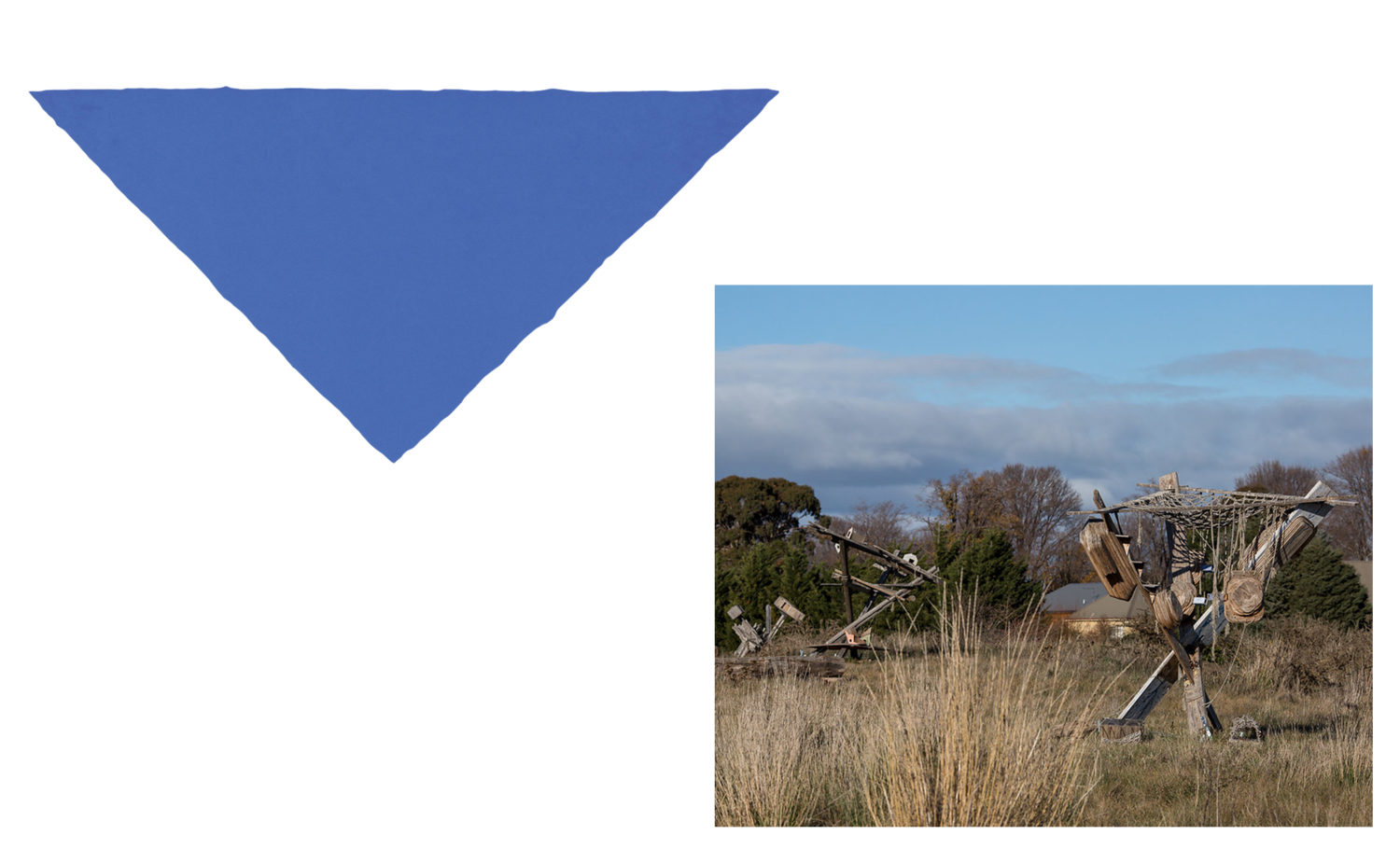
The Cultural Value and Impact Network (CVIN) is building RMIT University’s expertise in interdisciplinary collaboration and inventive methods for articulating, measuring, evaluating cultural value and social impact. With practitioners and academics from across the University, we are building strong creative teams that use new interdisciplinary methods attuned to cultural complexity and diverse communities to enable high impact research partnerships with the arts and cultural sectors, government and NGO community. We have been mapping the capabilities with our colleagues in Art, Economics, Education, Finance and Marketing, Global Urban Studies, Media and Communication, Design, Architecture, and affiliates of DCP ECP, Global Business and Innovation and Social Change. We have collated existing research methods and industry projects through a survey and interviews to identify existing approaches, drivers, current gaps, and future interdisciplinary methodological possibilities for student training and partnerships.
Find out more about the Cultural Value and Impact Network [CVIN.
If you would like to get involved with this project, fill out the form below or reach out to project leaders via the contact info provided alongside each bio.
People
Bronwyn Coate
Senior Lecturer
School: Economics, Finance and Marketing
Dr Bronwyn Coate is a Senior Lecturer in the School of Economics, Finance and Marketing who specialises in cultural economics. Bronwyn’s research involves economic analysis of the arts and creative industries using a range of economic and experimental techniques including approaches from behavioural economics and behavioural science. Areas her research has focused upon include art markets, artists/cultural labour, and cultural/creative industries. Much of Bronwyn’s research is undertaken within mult-idisciplinary teams and focused upon addressing issues with policy relevance for the arts and cultural sector. Bronwyn is a member of a number of a number of research groups including the Cultural Value Impact Network (CVIN), Kinomatics Research Group, Behavioural Business Lab (BBL) and Placemaking Economics Research Group. She is also the current Secretary/Treasurer of the Association for Cultural Economics International (ACEI).
Gretchen Coombs
Post Doctoral Research Fellow
School: Design and Creative Practice
Gretchen Coombs is a Post Doctoral Research Fellow in the Design & Creative Practice Enabling Capability Platform at RMIT. She researches socially engaged art practices in the US, the UK and Australia, with a particular focus on how they are practiced in urban contexts. She’s a core member of the Cultural Value and Impact Network (CVIN) and contributes to Creative Care in the School of Art. Gretchen has a PhD in social and cultural anthropology and a MA in visual criticism: her writing uses a combination of ethnographic methods and visual analysis. She is a co-author of Creative Practice Ethnographies (Rowan & Littlefield 2019) and her monograph, The Lure of the Social: Encounters with Contemporary Artists (Intellect 2021 ) is an experimental ethnography about contemporary artists working at the intersection of art, aesthetics, and politics.
Kit Wise
Professor
School: School of Art
99252219
RMIT staff profile
kit.wise@rmit.edu.au
After graduating from Oxford University and the Royal College of Art with an MFA in Sculpture, Kit Wise received the Wingate Rome Scholarship in Fine Art in 1999, to study at the British School at Rome. He moved to Australia in 2002 and completed his PhD at Monash University in 2012.
Wise has held senior educational leadership and leadership and governance roles since 2008. He is a Board Member for Deans and Directors of Creative Arts (DDCA) and Deputy Chair of the Executive Council of the Australian Council of University Art and Design Schools (ACUADS).
He is Professor of Fine Art and Dean of the School of Art at the RMIT University; and an Adjunct Professor at Monash University and the University of Tasmania. He is represented by Sarah Scout Presents, Melbourne and continues to practice as an artist, art writer and curator.
Doubting Writing/Writing Doubt
Expanded writing program

This project brought together writers of diverse disciplinary and creative backgrounds to explore new methodologies for arts writing and criticism in response to the exhibition On Vulnerability and Doubt at ACCA. Following a public call-out, that attracted over 60 applicants, ten writers were selected to participate in a series of workshops, a public readings event and to co-design a digital publication.
Doubting Writing/Writing Doubt took the exhibition themes of doubt and vulnerability as provocations from which to write about art. It built on the success of 2018’s Writing in the Expanded Field, which explores diversification in contemporary critical writing.
The project was a great success, attracting excellent applicants, high public interest, connections with the arts publishing industry, and firmly consolidating the partnership between non/fictionLab and ACCA.
Digital Publication
ACCA Program Page
Podcast of Public Readings Event
If you would like to get involved with this project, fill out the form below or reach out to project leaders via the contact info provided alongside each bio.
People
Lucinda Strahan
School: Media and Communication
Lucinda Strahan is a writer and researcher of expanded nonfiction. Lucinda’s own expanded writing practice spans journalism and arts criticism, auto-ethnographic and personal essaying, editing and publishing, and exploratory literary-visual methods. She is the currently Writer in Residence at Linden New Art, St Kilda and in 2017 was Writer in Residence Residence at Grey Projects, Singapore as part of her ongoing interest in interdisciplinary critical/creative writing practices. Lucinda is a Lecturer in the Professional Communication program in the School of Media and Communication.
Mixed Reality Applications for Architecture and Construction
Experiencing Architecture Before it's Built
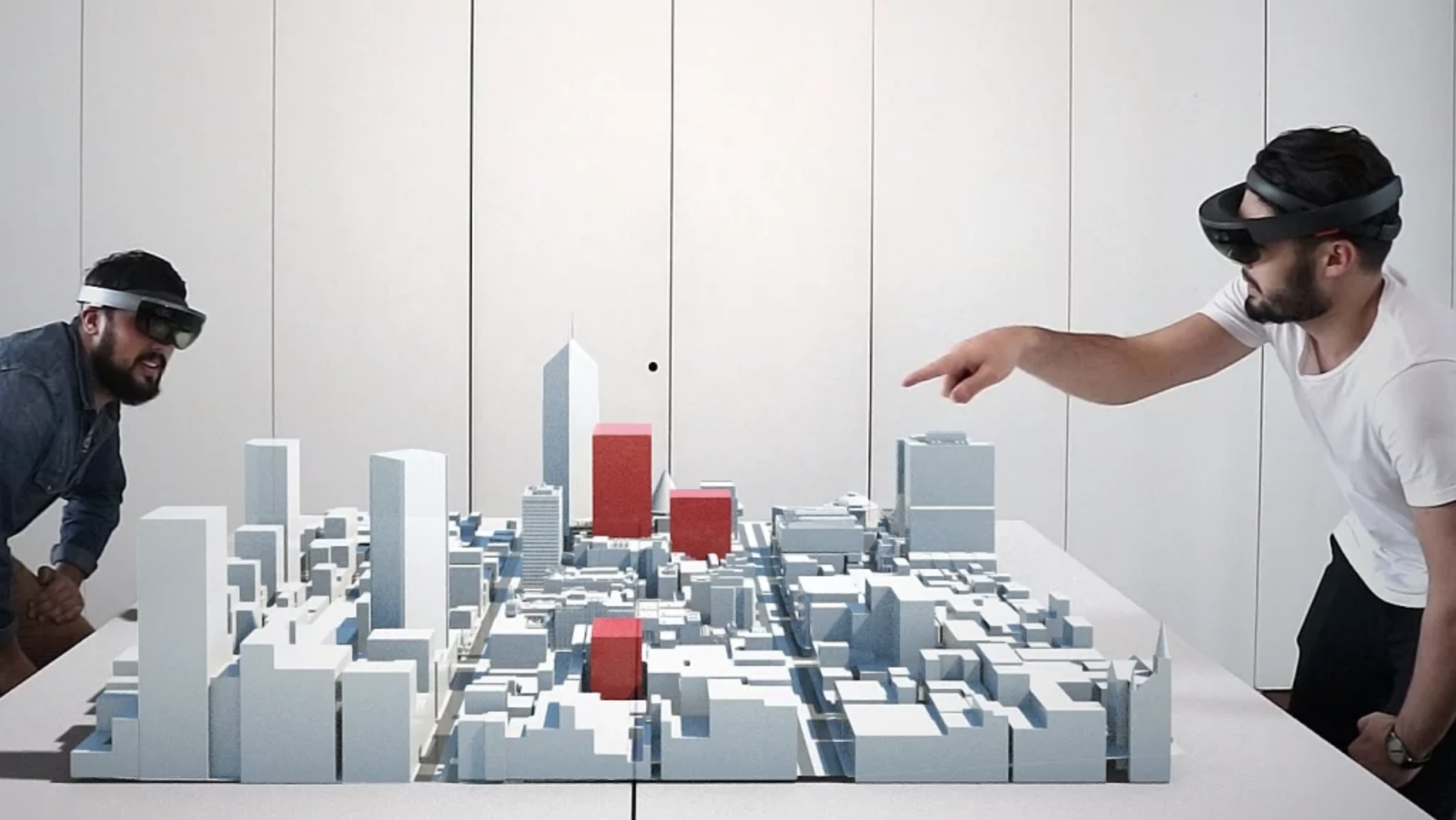
As digital technology allows architects to imagine increasingly complex forms, mixed reality (MR) will make it clearer, if not easier, for the construction industry to execute these forms. This project explores the application of a newly developed technology, Rhino Holographic, in enabling efficiency and enhanced opportunity in the architecture and construction industries.
If you would like to get involved with this project, fill out the form below or reach out to project leaders via the contact info provided alongside each bio.
People
Paul Minifie
Associate Professor, Design and Social Context
School: Architecture and Urban Design
+61 3 9925 3508
RMIT staff profile
paul.minifie@rmit.edu.au
Paul Minifie is a senior lecturer for the Architecture program in RMIT’s School of Architecture and Urban Design and a Director of Minifie van Schaik Architects.
#SiteAnalytics
Using data capture technologies to solve environmental and technological challenges
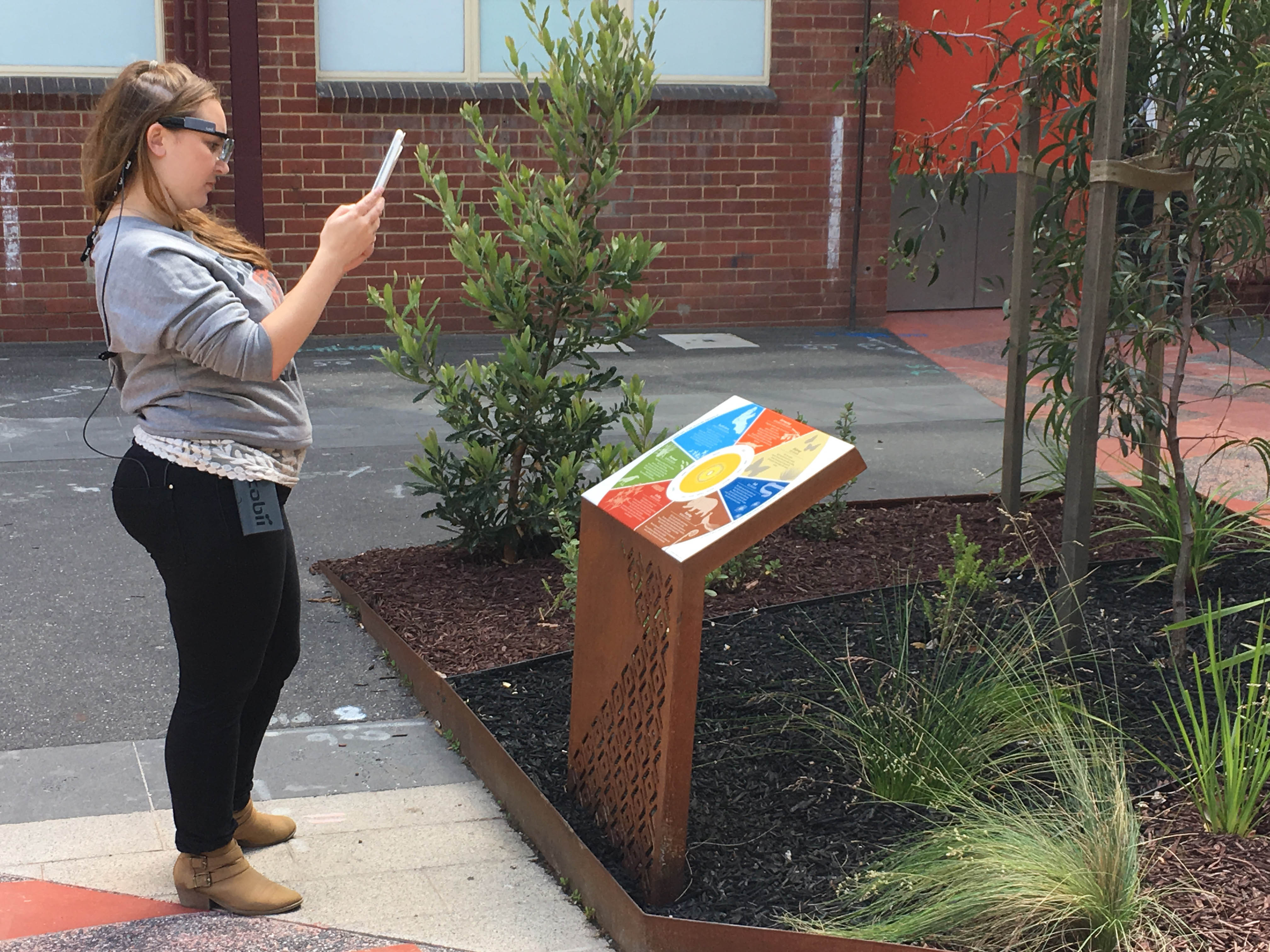
How can different mobile media innovations be usefully applied to understand the complex relationship between people, place and technologies? #SiteAnalytics is using data capture technology to solve environmental and technological challenges. More specifically, we’re using maps, mobile media and apps to generate new understandings about consumer behavior, site visitations and target audience reach and impact. We’re using this information to examine the usefulness of big data and mobile data capture technologies, and to translate this knowledge into practical and relevant solutions for industry.
If you would like to get involved with this project, fill out the form below or reach out to project leaders via the contact info provided alongside each bio.
People
Olivia Guntarik
Senior Lecturer, Design and Social Context
School: Media and Communication
+61 3 9925 1911
RMIT staff profile
olivia.guntarik@rmit.edu.au
Dr Olivia Guntarik is interested in the relationship between people, places and technologies. She has co-designed and curated place-based cultural walking trails with Indigenous community groups, using mobile apps as self-guided digital tour guides, and as a way to commemorate sites of historical significance. She has led numerous industry-based research projects that bring together writers, artists, designers and digital experts with geographers, sociologists, ethnographers and educators. She was awarded two distinguished Creative Victoria funding initiatives, co-supported through the Department of Education and Training under the Virtual Creative Professionals in Schools program, to provide schools in rural and regional locations with the highest quality creative and digital learning experiences. Research outcomes included the development of interactive mobile apps and site-specific public installations, providing new ways to document and understand user engagement, participation and impact.
Transforming Motorways' Noise Barriers
A biophilic soundscape system to reduce noise and air pollution and improve livability
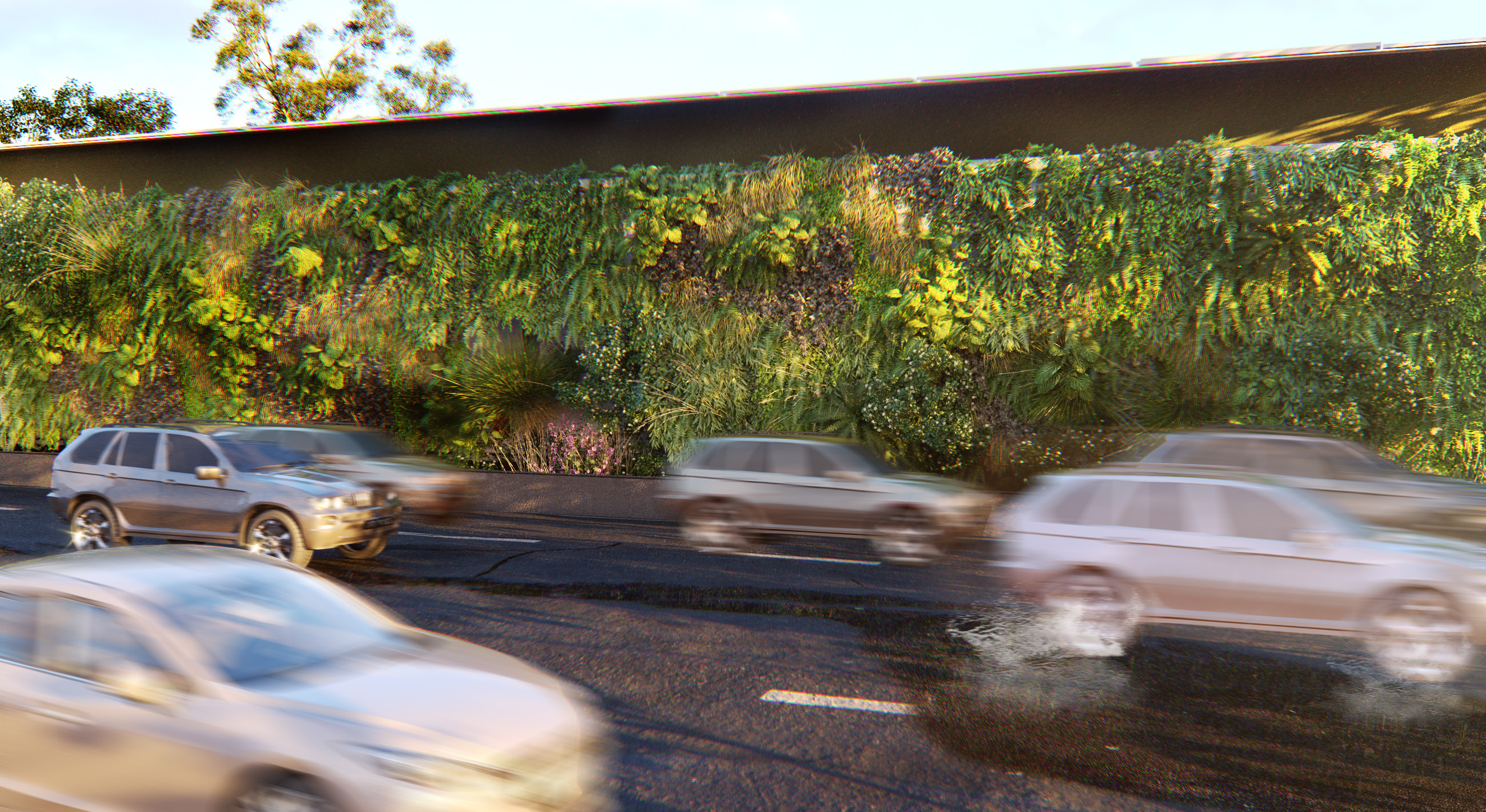
This innovative project uses a holistic approach to transforming how we experience noise from motorways. The motorway’s noise barriers in this project use a unique, low maintenance breathable greening system and a biophilic soundscape system. This transformative approach to Motorways’ Noise Barriers will create ecological buffers and corridors to reduce air pollution, transform noise and improve the liveability of the surrounding community and drivers. The ‘ecological buffers and corridors” encourage biodiversity, address habitat fragmentation, and give better access to the adjacent parks and pathways.
The modular retrofit system works by:
- Reducing Air Pollution
- Reducing Noise Pollution
- Improving Liveability
If you would like to get involved with this project, fill out the form below or reach out to project leaders via the contact info provided alongside each bio.
People
Jordan Lacey
VC Research Fellow
School: School of Design
Dr Jordan Lacey is a transdisciplinary creative practice researcher and DECRA Fellow in the School of Design at RMIT University. He is the author of Sonic Rupture: a practice-led approach to urban soundscape design (Bloomsbury 2016), and various articles, which explore the role of sound installations in transforming urban life. Originally a musician and sound-artist, Jordan has become increasingly focused on the urban environment as evolving into sites-of-encounter that might exceed the typical day-to-day functions of city life. He has produced numerous sound art installations, funded by government and industry partners, that seek to influence approaches to urban design. Recently, he has become interested in posthuman critical theory as a means to question the meaning of being human in a changing world, and the ways in which sonic practices might contribute to this conversation.
Aesthetics, Politics and Histories: The Social Context of Art
AAANZ Conference 2018
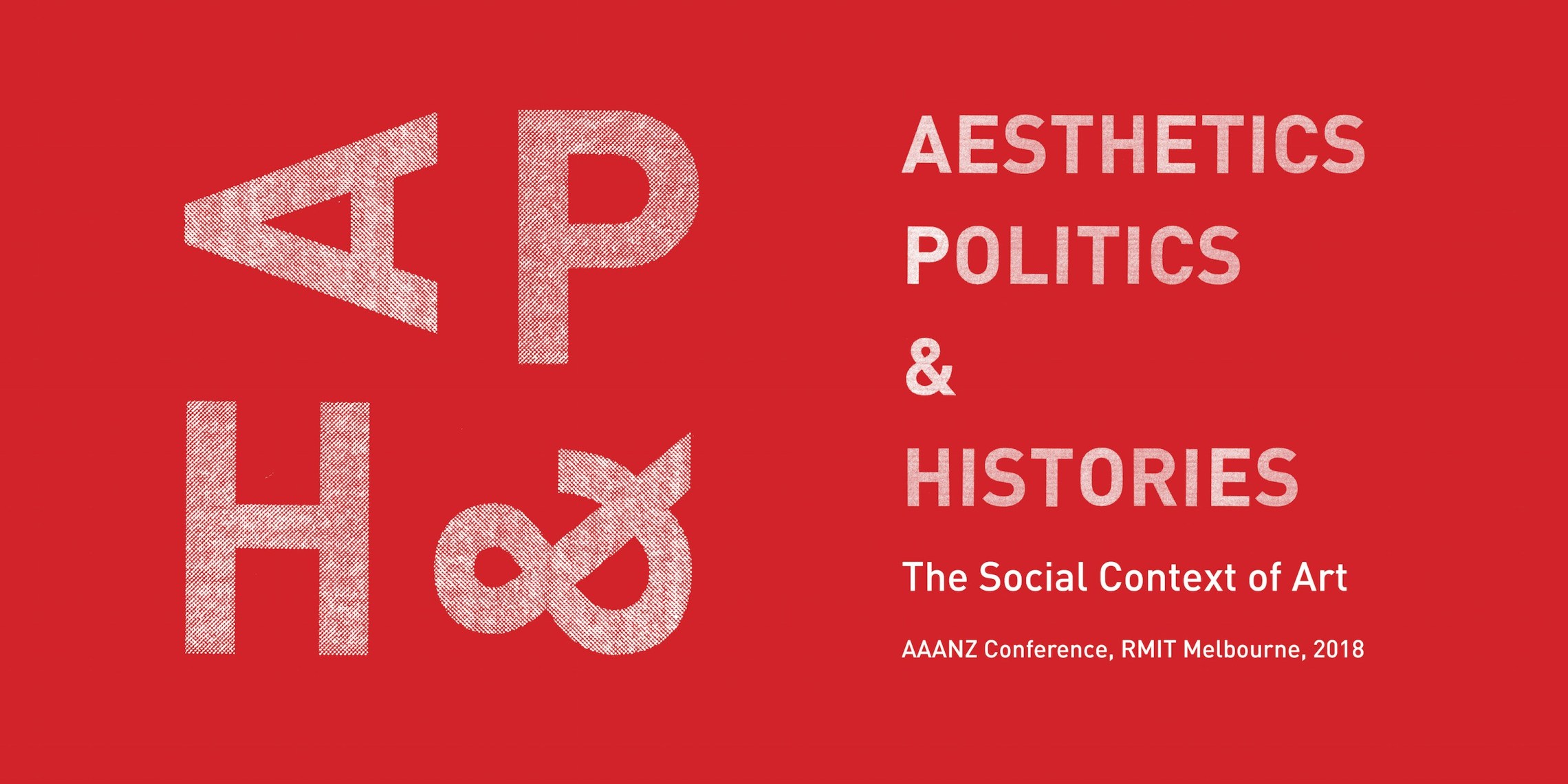
The 2018 AAANZ conference opens critical dialogue on the histories of art by examining the social contexts of aesthetics and politics. Bringing together art historians, theorists, curators, critics, and artists from across the region, the conference offers a stimulating four-day program of panels and papers, publication prizes, masterclasses and encounters with Melbourne’s vibrant arts sector with a parallel artistic program to be announced in coming months.
The conference features distinguished keynote speakers who will present expanded and alternative frameworks for understanding the diverse contexts and histories of art. Gabi Ngcobo (South Africa), curator of the 10th Berlin Biennale; Genevieve Grieves (AUS), Head of the First Peoples Department at Museums Victoria; and Ema Tavola (Fiji), independent curator are each engaged in critical curatorial practices aimed at democratising and decolonising art institutions and opening up art collections to alternative perspectives and narratives traditionally overlooked by museums and galleries. Art historian Professor Griselda Pollock (UK) from Leeds University is renowned for her postcolonial, queer feminist analysis of the visual arts, visual culture and cultural theory and research of trauma and the aesthetic in contemporary art. Curator and Associate Professor David Teh specialises in contemporary art in Southeast Asia.
The intersection of art and society is where differing worldviews and opposing epistemologies can meet and clash. Art offers a site for modelling political alternatives, questioning dominant discourses, and producing new historical narratives. Responding to the political, economic and environmental tensions of the present moment, the conference explores the relationship of the arts to social life throughout history. Located in a region marked by multiple and overlapping colonial and postcolonial histories and contemporary processes of globalisation, the conference aims to initiate critical dialogues that foreground the complex contexts, diverse practices, multiple histories, and contested trajectories of art.
KEYNOTE SPEAKERS
Genevieve Grieves is Worimi – traditionally from mid north coast New South Wales – and has lived on Kulin country in Melbourne for many years. She is an educator, curator, filmmaker, artist and oral historian who has accumulated nearly twenty years’ experience in the arts and culture industries. Some of her projects include the documentary, Lani’s Story; the video installation, Picturing the Old People; and, she was the Lead Curator of the internationally award-winning First Peoples exhibition at the Melbourne Museum. Genevieve has a role as a public intellectual and speaker and is undertaking her PhD in arts, memorialisation and frontier violence. She is Head of the First Peoples Department at Museums Victoria.
Gabi Ngcobo is the curator of the 10th Berlin Biennale. Since the early 2000s Ngcobo has been engaged in collaborative artistic, curatorial, and educational projects in South Africa and on an international scope. She is a founding member of the Johannesburg based collaborative platforms NGO – Nothing Gets Organised and Center for Historical Reenactments (CHR, 2010 – 14). NGO focusses on processes of self-organization that take place outside of predetermined structures, definitions, contexts, or forms. CHR responded to the demands of the moment through an exploration of how historical legacies impact and resonate within contemporary art.
Recently Ngcobo co-curated the 32nd Bienal de São Paulo, which took place in 2016 at the Ciccillo Matarazzo Pavilion in São Paulo, and A Labour of Love at Weltkulturen Museum, Frankfurt am Main in 2015⁄16) and travelled to the Johannesburg Art Gallery in 2017. She has been teaching at the Wits School of Arts, University of Witswatersrand, ZA, since 2011. Her writings have been published in various catalogues, books, and journals. She currently lives and works between Johannesburg and Berlin.
You can find out more about the event here.
If you would like to get involved with this project, fill out the form below or reach out to project leaders via the contact info provided alongside each bio.
People
Marnie Badham
Senior Research Fellow/ Senior Lecturer
School: School of Art
With a twenty-five-year history of art and social justice practice Australia and Canada, Marnie’s research sits at the intersection of socially engaged art, community-based research methodologies and the politics of cultural measurement. Marnie is currently focused on a series of creative cartographies registering emotion in public space; expanded curation projects on the aesthetics and politics of food; and a book project The Social Life of Artist Residencies: connecting with people and place not your own. Marnie is Senior Research Fellow at the School of Art following the prestigious award of Vice Chancellor’s Postdoctoral Research Fellow at RMIT University. Marnie co-leads the Cultural Value Impact Network and is acting Leader for CAST Contemporary Art and Social Transformation research group.
Daniel Palmer
Associate Dean
School: School of Art
Daniel Palmer is Associate Dean of Research and Innovation in the School of Art at RMIT University.
Daniel Palmer’s research and professional practice focuses on contemporary art and cultural theory, with a particular emphasis on photography and digital media. Prior to joining RMIT in 2018, Palmer was Associate Dean of Graduate Research and Associate Professor in the Art History & Theory Program at Monash Art, Design & Architecture. He also has a long association with the Centre for Contemporary Photography in Melbourne, first as a curator and later on the board of management.
Palmer’s book publications include Photography and Collaboration: From Conceptual Art to Crowdsourcing (Bloomsbury 2017); Digital Light (Open Humanities Press, 2015), edited with Sean Cubitt and Nathaniel Tkacz; The Culture of Photography in Public Space (Intellect 2015), edited with Anne Marsh and Melissa Miles; Twelve Australian Photo Artists (Piper Press, 2009), co-authored with Blair French; and Photogenic (Centre for Contemporary Photography, 2005). His scholarly writings on photography and contemporary art have appeared in journals such as Photographies, Philosophy of Photography, Angelaki, Reading Room and the Australian and New Zealand Journal of Art. Palmer has also published over sixty catalogue essays and fifty art reviews since 1997, in art magazines including Art and Australia, Photofile and Frieze.
Palmer has been the recipient of various awards and grants, and has been Chief Investigator on multiple ARC projects, including the ARC Discovery Project ‘Genealogies of Digital Light’ (2008 – 11) with Sean Cubitt and Les Walkling; an ARC Linkage Project ‘Photography as a Crime’ (2009 – 2012) with Anne Marsh, Melissa Miles, Mark Davison and the Centre for Contemporary Photography; and the ARC Discovery Project ‘Curating Photography in the Age of Photosharing’; (2015 – 2017) with Martyn Jolly. Palmer is currently a researcher on the ARC Discovery Project ‘Digital Photography: Mediation, Memory and Visual Communication’ (2020 – 2022) with Scott McQuire, Nikos Papastergiadis, Sean Cubitt and Celia Lury.
Cold Climate Landscapes and Atmospheres
Examining the effects of global warming on cold climate ecologies
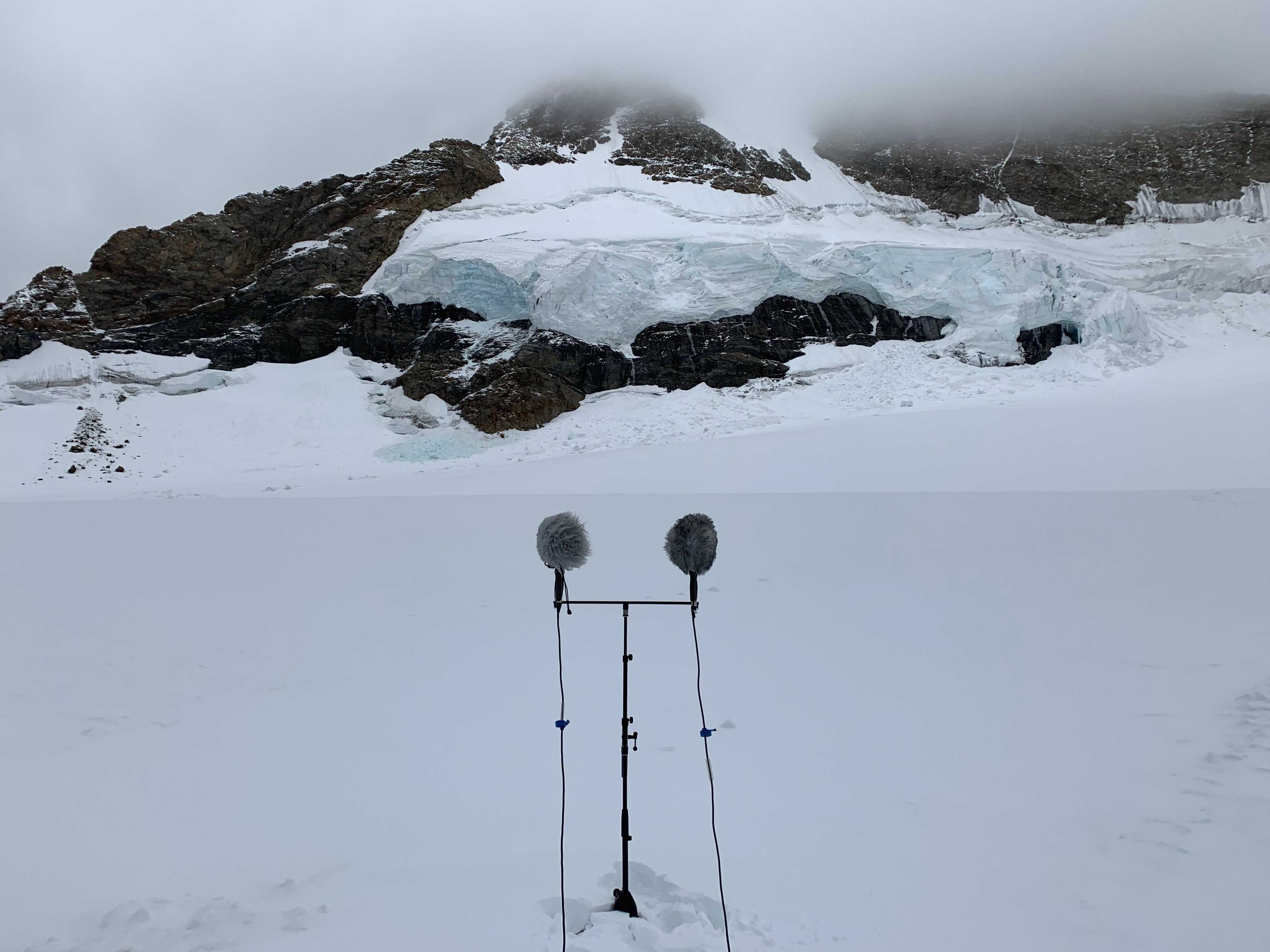
This project explores the impact of extreme climate and weather events on rarefied wilderness environments through the process of sound mapping to reveal the transformations occurring on the margins of our planet, and yet central to the health and wellbeing of everyone. Art is a powerful agent and advocate in how these transformations are perceived and the actions required to mitigate destructive behaviours and their long-term consequences.
“I’m not a scientist but I’m using art to articulate some of these observations and concerns to a much broader audience.”
— Lead researcher, Philip Samartzis in SWI swissinfo.ch, This is what the changing Alps sound like, 20 December 2019.
If you would like to get involved with this project, fill out the form below or reach out to project leaders via the contact info provided alongside each bio.
People
Philip Samartzis
School: School of Art
Philip is an Associate Professor within RMIT School of Art, and leader of the Sound Art and Audio Culture Lab.
Associate Professor Samartzis is a sound artist, scholar and curator with a specific interest in the social and environmental conditions informing remote wilderness regions and their communities. His art practice is based on deep fieldwork where he deploys complex sound recording technology to capture natural, anthropogenic and geophysical forces. The recordings are used within various exhibition, performance and publication outcomes to demonstrate the transformative effects of sound within a fine art context. He is particularly interested in concepts of perception, immersion and embodiment in order to provide audiences with sophisticated encounters of space and place. Philip is the recipient of three Australian Antarctic Division Arts Fellowships (2009, 2015, 2020), which he is using to document the effects of extreme climate and weather events in Eastern Antarctica, Macquarie Island, and the Southern Ocean over a 12-year period.
COVIDSafe
Perceptions and Practices
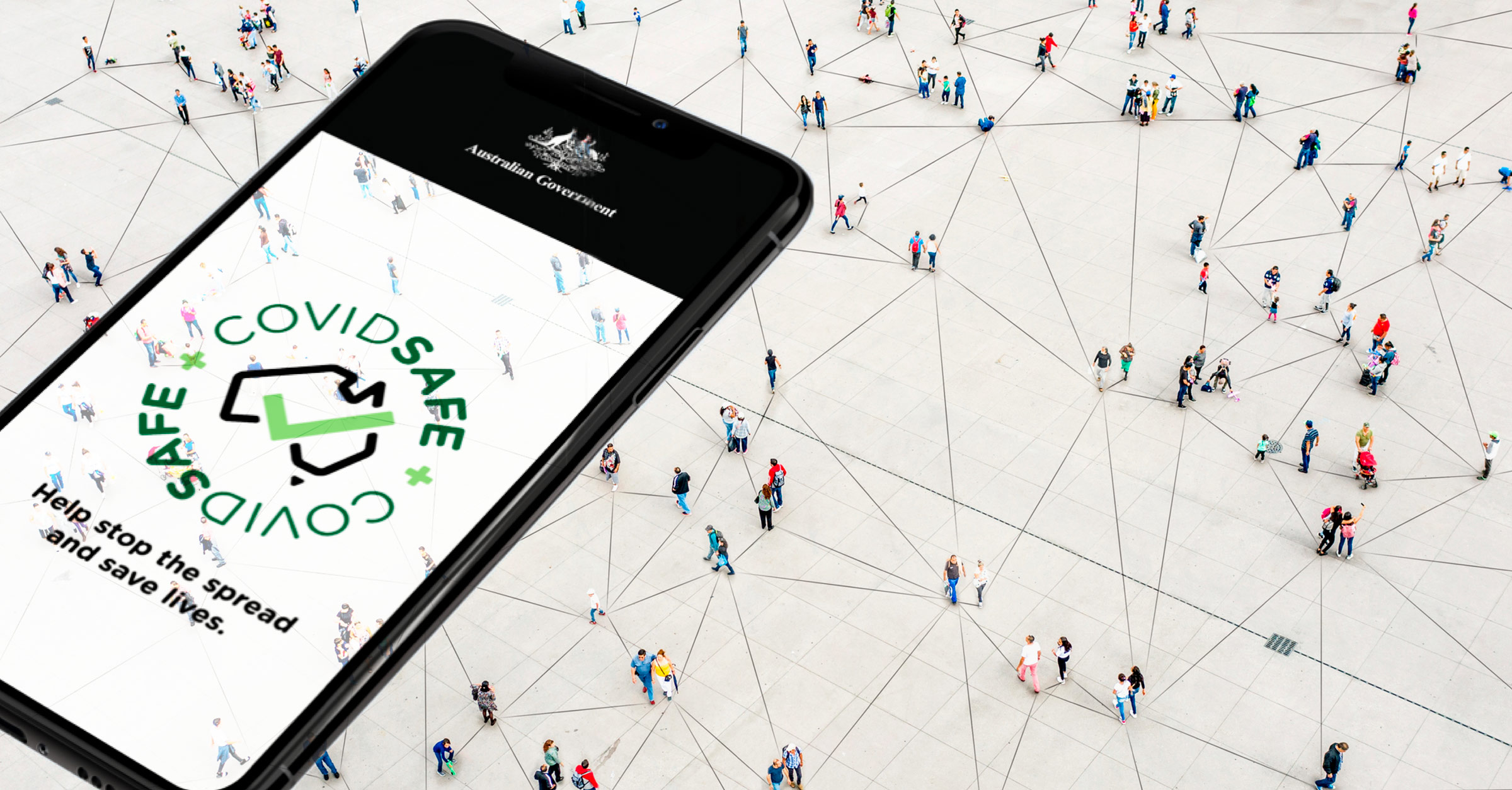
Recognising the social, civil and governance impact of the COVID19 crisis, COVIDSafe: Perceptions and Practices highlights how Australian’s are understanding and responding to these changes at a community and personal level.
We want to hear your voice.
This research project responds to the shifting environment of COVID19, exploring questions as they emerge. Questions include:
• From government contact tracing through the COVIDSafe app, to more informal practices such as details at cafes and restaurants, how do Australians respond to their information and locations being monitored and recorded?
• With the emergence of new norms in public space such as mask wearing and social distancing, how have people adjusted to differing understandings of civic responsibility toward public health?
• How is ethnicity, age and background informing responses to public health messaging?
• To what extent do individuals perceive the COVID-19 crisis as bringing about community solidarity. Or, alternately, bringing to the fore existing inequalities?
Against the backdrop of the COVID-19, this research seeks to understand how we negotiate, trust and relate to the government, the community and each other.
You can find out more details about the research through this Participant Information Sheet.
If you are in anyway struggling during the COVID19 crisis, there are a range of free services and support available that can assist you or a loved one at this time that you can access here.
If you would like to get involved with this project, fill out the form below or reach out to project leaders via the contact info provided alongside each bio.
People
Larissa Hjorth
Distinguished Professor and Director, Design and Creative Practice
School: Enabling Capability Platforms
Larissa Hjorth is a digital ethnographer, artist, Distinguished Professor and director of the Design & Creative Practice ECP platform at RMIT University. With Professor Heather Horst, she co-founded the Digital Ethnography Research Centre (DERC). Previously, Hjorth was Deputy Dean, Research & Innovation, in the School of Media & Communication (2013−2016). Hjorth served on the inaugural Australian Research Council (ARC) Engagement & Impact Pilot study assessment panel for humanities and creative practice.
Hjorth studies the socio-cultural dimensions of mobile media and play practices in the Asia-Pacific region with an emphasis on interdisciplinary, collaborative and cross-cultural approaches. She has published a dozen co-authored books, edited over a dozen Handbooks/Companions and has over 40 journal articles.
More recently, Hjorth’s work has become concerned with how we can bring creative, social and design solutions to the growing ageing populations and, in turn, how we might consider scenarios of what it means to die well. She is also studying how our “more-than-human” companions can teach us about new media in everyday life. Hjorth’s last book, Haunting Hands (Oxford Uni Press) looked at how mobile media is being deployed in situations of grief and trauma, her previous book explored how art practice can teach us new acumen into the climate change debate.
Hjorth’s books include Haunting Hands (with Cumiskey 2017), Screen Ecologies (with Pink, Sharp & Williams 2016), Digital Ethnography (Pink et al. 2016) Mobile Media in the Asia-Pacific (2009), Games & Gaming (2010), Online@AsiaPacific (with Arnold 2013), Understanding Social Media (with Hinton 2013), and Gaming in Locative, Social and Mobile Media (with Richardson 2014).
Hugh Davies
Postdoctoral Research Fellow
School: Games
Hugh Davies is an artist, curator and researcher of games and play. His practice explores histories of media devices and cultures of games in the Asia Pacific Region. Awarded a PhD in Art, Design and Architecture from Monash University in 2014, Hugh’s studies in game cultures have been supported with fellowships from Tokyo Art and Space, M+ Museum of Visual Culture and the Hong Kong Design Trust. Hugh is currently a postdoctoral research fellow at RMIT in Melbourne, Australia.
Ingrid Richardson
Professor
School: Media and Communication
Professor Ingrid Richardson has been teaching, supervising and researching in the fields of digital media, mobile media and games for over twenty years. She has a broad interest in the human-technology relation and has published widely on the phenomenology of games and mobile media, digital ethnography and innovative research methods, the relation between technology use and wellbeing, and the cultural effects of urban screens, wearable technologies, virtual and augmented reality, remix culture and web-based content creation and distribution. Ingrid has led or co-led 14 funded research projects, the most recent being an ARC DP [Games of Being Mobile] with Larissa Hjorth. She is contributing co-editor of Studying Mobile Media (Routledge, 2011) and co-author of Gaming in Social, Locative and Mobile Media (Palgrave, 2014), Ambient Play (MIT, 2020), Understanding Games and Game Cultures (Sage, 2020), Exploring Minecraft: Ethnographies of Play and Creativity (Palgrave, forthcoming), and Mobile Media and the Urban Night (Palgrave, forthcoming). Ingrid brings ten years’ experience in university-level HDR management and during this time has actively championed and supported creative methods and practice-led postgraduate research. Over the past five years she has also developed a passion for teaching critical web literacy skills to undergraduate students across all disciplines.
Ruth De Souza
VC Research Fellow
School: School of Art
Dr Ruth De Souza (FACN) is a Vice-Chancellor’s Fellow at RMIT, based in the School of Art and DCP Research Platform. She is a nurse, academic and a community-engaged researcher in gender, race, health and digital technologies. Ruth’s Fellowship will engage health professionals in finding new ways to understand, co-design and implement sustainable cultural safety initiatives in a range of health contexts in response to health inequities.
Prior to moving to Australia in 2013, Ruth worked at AUT University where she taught in the School of Nursing, led the Bachelor of Health Promotion, and was a Senior Research Fellow at the Centre for Asian and Migrant Health Research. Since her arrival in Australia, Ruth has undertaken a wide range of roles, including leading an undergraduate nursing program at Monash University’s Berwick campus; spearheading a unique community-engaged joint research appointment with North Richmond Community Health exploring how wearables and other digital technologies are perceived by people from culturally and linguistically different backgrounds and co-ordinating an interdisciplinary Data Systems and Society Research Network across the University of Melbourne. Ruth has also investigated the applicability of cultural safety in Australia, working closely with The Congress of Aboriginal and Torres Strait Islander Nurses and Midwives (CATSINaM), presenting at their National Professional Development Conferences and delivering training on cultural safety. She has also undertaken a two-year cultural safety project with cohealth (a not-for-profit community health organisation) and Our Watch who work for the primary prevention of violence against women and their children.
Mark Andrejevic
Professor
School: Media, Film, and Journalism
Mark Andrejevic (Professor, School of Media, Film, and Journalism, Monash University) contributes expertise in the social and cultural implications of data mining, and online monitoring. He writes about monitoring and data mining from a socio-cultural perspective, and is the author of three monographs and more than 60 academic articles and book chapters. He was the Chief Investigator for an ARC QEII Fellowship investigating public attitudes toward the collection of personal information online ($390,000; 2010 – 2014).
Andrejevic has experience conducting both quantitative and qualitative research and is experienced in the focus group and interview methodologies. His work on the personal information project, for example, generated a book, 11 articles and book chapters, and a report on Australian attitudes toward online privacy that was launched by the Federal Privacy Commissioner.
Creative Ecologies
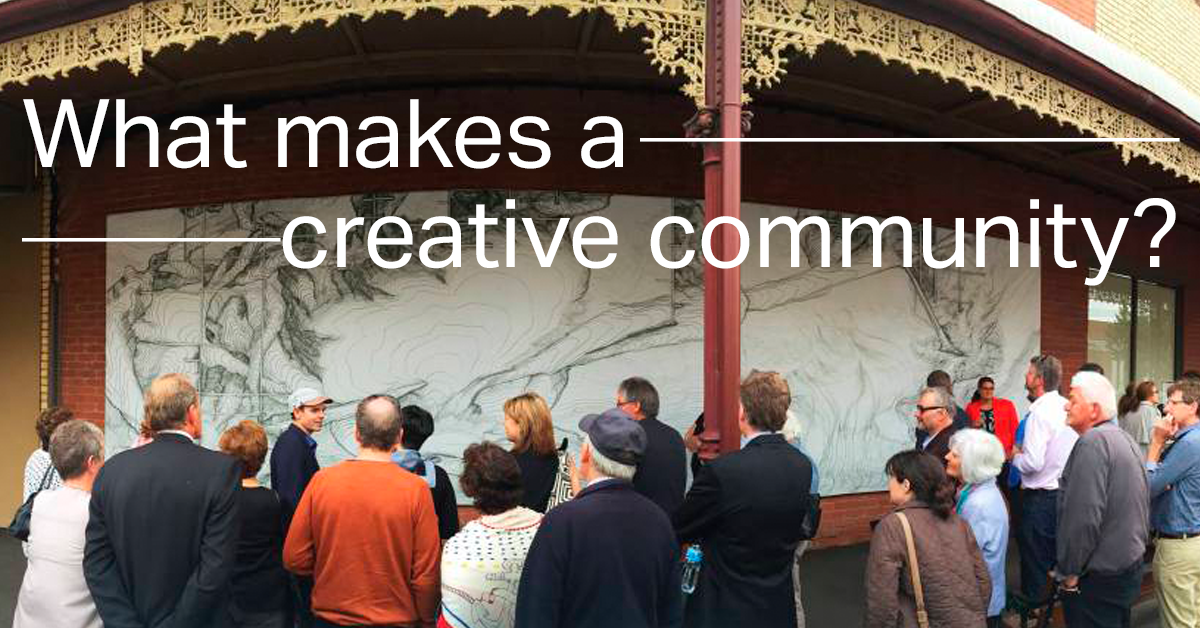
Creative Ecologies is a collaborative investigation into what makes Australia’s creative landscapes tick. The aim is to understand what it takes to build thriving creative communities and then develop tools to foster their growth.
The goal of the project is to develop a simple way of articulating the complex ways creative ecologies operate. Core to this will be highlighting connections to the wider society and demonstrating value beyond purely economic indicators. The long-term ambition of Creative Ecologies is to expand our understanding and appreciation of creative exertion – and have its central place in Australia’s national character recognised. It will do this by developing and raising awareness of a framework and resource for policymakers, practitioners and advocates. This will be a live, interactive visual map of the nation’s creative ecologies, combining data, case studies and avenues for connection across the sector.
The project began in late 2017 and the arising work and findings including a national survey, one-on-one consultations, interactive workshops were presented at the Engaging For Impact conference in February 2018. Creative Ecologies now has an expanded list of RMIT researchers on board
LEAD RESEARCHER
○Jan van Schaik, Senior Lecturer, School Architecture & Urban Design
SUPPORTING RESEARCHERS
○Marnie Badham, Vice Chancellor’s Postdoctoral Fellow, School of Art
○Bronwyn Coate, Senior Lecturer, Economics, Finance and Marketing
○Gretchen Coombs, Postdoctoral Fellow, DCP ECP
○Christine Phillips, Senior Lecturer, Architecture & Urban Design
○Professor Jason Potts, Economics, Finance and Marketing
○Noel Waite, Senior Lecturer, Communication Design
○ Professor Ellie Rennie, Digital Ethnography Research Centre
○Professor Mark Sanderson, Computer Science and Information Technology
You can find out more about CREATIVE ECOLOGIES here.
If you would like to get involved with this project, fill out the form below or reach out to project leaders via the contact info provided alongside each bio.
People
Jan van Schaik
Senior Lecturer
School: Architecture and Urban Design
Jan van Schaik is a practising architect at MvS Architects, a researcher and senior lecturer at RMIT Architecture & Urban Design, and a creative and cultural industries strategist at Future Tense. His is the leader of the ‘Culture and Society’ research stream, and a PhD superrvisor of established architects conducting post-professional reflective practice research. Jan is the founder of the WRITING & CONCEPTS lecture and publication series which reflects of the role that writing plays in visual arts practice. Jan is also one of the founders of Creative Ecologies„ a collaborative investigation into what makes Australia’s creative landscapes tick. The aim is to understand what it takes to build thriving creative communities and then develop tools to foster their growth.
Cultural Commonalities Memory Game
Increasing social inclusion through a game
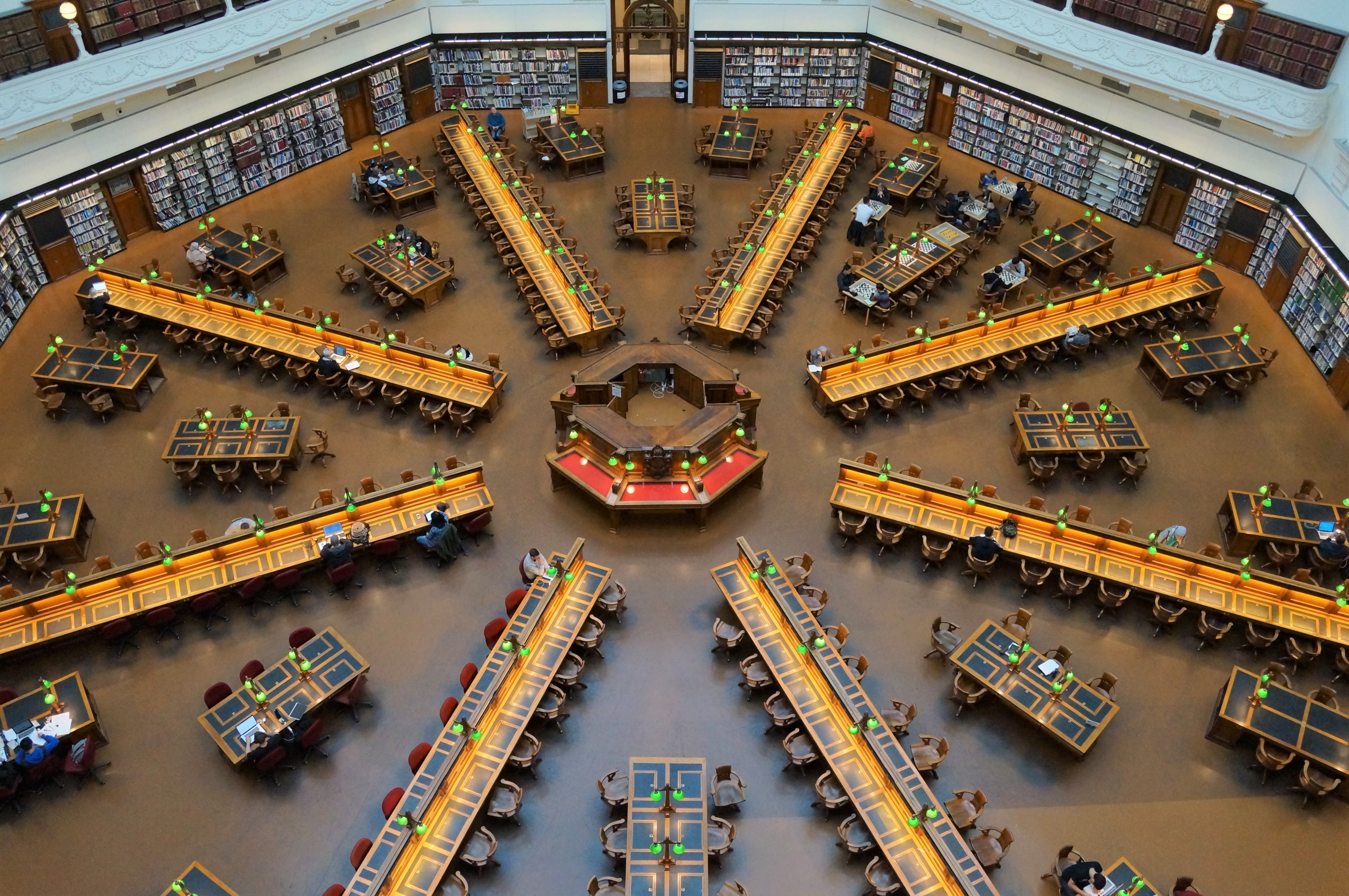
Games teach us many things – how to play, how to strategize, and how to have fun with others. Yet, in our globalised world, people are increasingly exposed to individuals from different cultural backgrounds, and often people feel alienated from people and things that are unfamiliar. The Cultural Commonalities Memory Game (CCMG) might just be one way bridge across cultures and help people connect and belong.
Social inclusion is a key factor in fostering the benefits of a diverse society. Bringing together design, psychology and behavioural economics, the CCMG aims to increase social and reduce bias in intercultural contexts. Players categorise images associated with different cultures together in a common group, highlighting commonalities across cultures whilst keeping their differences apparent. The game is designed so that players feel valued in their own individuality and experience a sense of belonging to the world as a whole.
More from the RMIT Behavioural Business Lab.
If you would like to get involved with this project, fill out the form below or reach out to project leaders via the contact info provided alongside each bio.
People
Ananta Neelim
Lecturer
School: Economics, Finance, and Marketing
Ananta is a Lecturer in Economics specialising in Behavioural, Development and Experimental economics. His academic research focuses on the impact of social institutions (like gender norms) on individual decision making and behavioural effects of rewards. He has successfully published his work in top-tier economics journals such as the Journal of Economic Behaviour and Organization and Economics Letters. Ananta also has conducted multiple impact evaluation projects and has provided consultancy services to Plan International, World Bank, International Organization for Migration, Swiss Development Corporation and the Consumer Policy Research Centre. Ananta received his PhD from Monash University in 2014.
Claus-Christian Carbon
Professor
School: Department of General Psychology and Methodology, University of Bamberg
Claus-Christian Carbon studied Psychology (Dipl.-Psych.), followed by Philosophy (M.A.), both at the University of Trier, Germany. After receiving his PhD from the Freie Universität Berlin and his “Habilitation” at the University of Vienna, Austria, he worked at the University of Technology Delft, Netherlands and the University of Bamberg, Germany, where he currently holds a full professorship leading the Department of General Psychology and Methodology and the “Forschungsgruppe EPAEG” — a research group devoted to enhancing the knowledge, methodology and enthusiasm in the fields of cognitive ergonomics, psychological aesthetics and Gestalt (see www.experimental-psychology.com and www.epaeg.de for more details). He is the author of more than 400 publications including more than 160 peer-reviewed international journal articles, mainly addressing aesthetics topics, has conducted more than a dozen research projects with a total budget amount of approx. €3 million and a renowned contributor and invited speaker on international research conferences. CCC is Editor-in-Chief of the scientific journal Art & Perception, Section Editor of Perception and i-Perception, Associate Editor of Frontiers in Psychology, Frontiers in Neuroscience and Advances in Cognitive Psychology and a member of the Editorial Boards of Open Psychology, Musicae Scientiae and Leadership, Education and Personality.
Jan Schoormans
Professor
School: Faculty of Industrial Design Engineering, Delft University of Technology
Dr. Jan Schoormans (1956) is a Professor of Consumer Behaviour at the Faculty of Industrial Design Engineering, Delft University of Technology, Delft, the Netherlands. His research focuses on consumer preferences and behavior towards (the design of) new products. He has published on these topics in marketing journals like the International Journal of Research in Marketing, Psychology and Marketing, the Journal of Product Innovation Management, in psychological journals like Perception and the British Journal of Psychology, in engineering journals like Applied Energy, Journal of Cleaner Production, and in design journals like Design Studies, Journal of Engineering Design and the Design Journal.
Janneke Blijlevens
Senior Lecturer
School: Economics, Finance, and Marketing
Janneke Blijlevens is a Senior Lecturer in Design Thinking and Experimental Methods within the Marketing Discipline. With a Masters in Psychology, a PhD in consumer behaviour and design, and work experience in both design and business schools her research is truly interdisciplinary. Janneke uses her ability to understand different ways of thinking to design innovative solutions to complex societal and business problems. Her approach uses behavioural insights obtained in both qualitative and quantitative research to affect positive behaviour change in society. Her research covers areas such as product (design) perception and evaluation by consumers, the social roles that products can play to consumers, how to design products for social change, and psychological factors influencing the adoption of highly innovative products by consumers. She has published in top-tier academic journals such as Psychology & Marketing, International Journal of Design, Acta Psychologica, British Journal of Psychology, Journal of Psychology in Aesthetics, Creativity, and Arts, and Journal of Design, Business and Society. The project ‘Sans Forgetica, a font to remember (sansforgetica.rmit)’ gained world-wide acclaim.
Joanne Peryman
Lecturer
School: Economics, Finance, and Marketing
Joanne Peryman (Laban) is a Lecturer in Economics. She holds a PhD in Economics from the University of Exeter, a Masters in Behavioural Economics from the University of Nottingham, and a BCom (Hons) in Economics from the University of Canterbury. Using mainly experimental methods, Jo’s research focuses on cultural differences in decision making, especially in situations involving uncertainty or risk. She has presented the results from this work at conferences in the UK, The Netherlands, and China. Jo is also keen to apply behavioural insights to policy. During her PhD she completed an internship with a UK Government Department, where she applied ideas from behavioural economics to real-life problems. Her work has attracted funding from the UK’s Economic and Social Research Council, as well as numerous small grants from the University of Exeter’s Behaviour, Decisions and Markets Research Centre.
Johanna Prasch
School: Economics, Finance and Marketing
Johanna E. Prasch is a PhD student and a research assistant and tutor in the School of Economics, Finance and Marketing and the BBL. After completing her Bachelors in Psychology from the University of Regensburg, and her Masters in Psychology from the University of Bamberg (both Germany), she started her PhD program in the BBL in February 2018. For her PhD project in consumer behaviour, Johanna got awarded a Stipend Scholarship from RMIT University. Her research interests centre around combining experimental methods from psychology and consumer behaviour to investigate mechanisms behind intercultural communication and behaviour. Currently, Johanna is investigating how to increase social inclusion and cooperation in multicultural settings.
Design and Social Innovation in Asia-Pacific Network
Capacity building in the Asia-Pacific region

How does design accompany and accelerate economic growth? Economies within the Asia-Pacific region are facing challenges of balancing economic development with social and cultural sustainability.
Design and Social Innovation in Asia-Pacific (DESIAP) is a learning platform, a community of practice and a network for collaboration and ongoing knowledge sharing for various practitioners, researchers, communities, and professionals working in the Design and Social Innovation (D&SI) space in this region. We facilitate rich exchanges on diverse, culturally respectful and contextually specific approaches to real-world problems.
Visit the DESIAP website.
If you would like to get involved with this project, fill out the form below or reach out to project leaders via the contact info provided alongside each bio.
People
Yoko Akama
Associate Professor, Communication Design Cluster
School: Communication Design
+61 3 9925 2805
RMIT staff profile
yoko.akama@rmit.edu.au
Yoko Akama is a design researcher at RMIT University, Australia. She co-leads the Design and Social Innovation in Asia-Pacific network and Design+Ethnography+Futures research program at RMIT.
Her Japanese heritage has embedded a Zen-informed relational practice to carve a ‘tao’ (path) in design and has published extensively on this topic. This practice is shaped by working with regional communities in Australia in strengthening their resilience for disaster preparedness, and with Indigenous Nations enact their sovereignty and self-determination. She is an Adjunct Fellow of a ecosystem innovation studio, Re:public Japan, and Visiting Fellow at the Centre of Excellence in Media Practice, Bournemouth University. She serves on several editorial boards of international journals, and conference review committees. She is a recipient of several major research grants in Australia and the UK and winner of the prestigious Good Design Australia Awards in 2014.
Establishing a Collaborative Design Facility
Aircraft Systems Design Laboratory
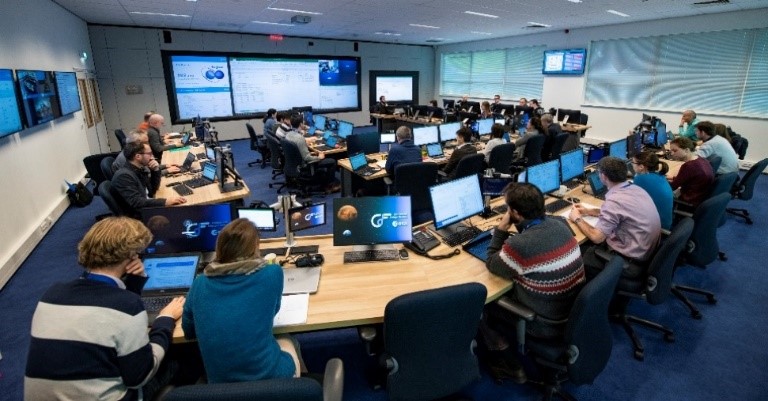
The Aerospace Systems Design Laboratory (ASDL) at the Georgia Institute of Technology, USA established a Collaborative Design Environment more than two decades ago. It has been applied to many complex problems and grand challenges. Inspired by this, Professors Cees Bill & Pier Marzocca invited Professor Dimitri Mavris, director of ADSL, to share lessons learned from and outcomes of their facility, in order to establish a similar facility at RMIT.
Professor Dimitri Mavris’ presentation identified some of the challenges faced by designers and presented some of the key enablers that contribute to the generation and synthesis of knowledge and the formulation of informed decisions. It discussed the benefits to analysts and decision makers for Collaborative Design Facilities in the context of Engineering Design. The lecture concluded with a demonstration on Environmentally Responsible Aviation and GT Smart Campus Initiative. The project has initiated funds to establish a local facility, making use of preliminary work already conducted within RMIT’s School of Engineering.
If you would like to get involved with this project, fill out the form below or reach out to project leaders via the contact info provided alongside each bio.
People
Cees Bil
Professor
School: School of Engineering
Cees Bil is Professor within the School of Engineering at RMIT’s Bundoora campus. He is a member of Royal Aeronautical Society (RAeS), a member of the Dutch Association of Aerospace Engineers (NVvL) and a senior member of the American Institute of Aeronautics and Astronautics (AIAA). His areas of research and consulting expertise include aerodynamics, Aerospace Design and Optimisation, Dynamics and Control, Computer-Aided Engineering as well as Simulation and Modelling.
Evaluating Design for Social Innovation
A case study for culturally grounded evaluation
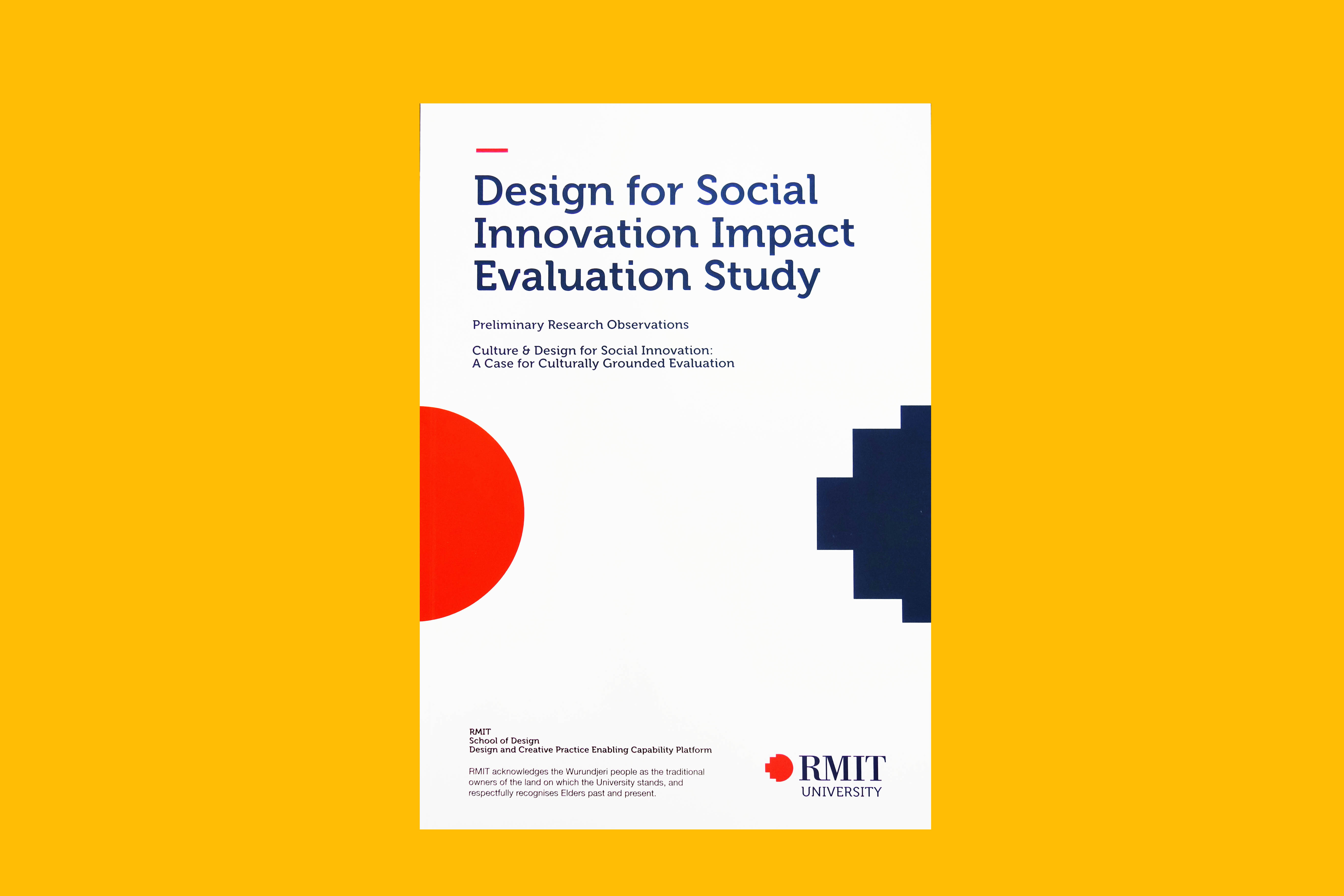
Design always matters, but designing for impact changes lives. For impact to be felt in diverse cultural contexts, we need to understand how cultures need and value design. Design for Social Innovation (DSI) is an approach for working on complex social and environmental challenges. It uses design principles to explore different ways of understanding and responding to those challenges.
Our work helps ensure that projects are of the greatest value to the communities that they are undertaken with, and that researchers are better able to communicate the impact of their projects.
View the report here.
If you would like to get involved with this project, fill out the form below or reach out to project leaders via the contact info provided alongside each bio.
People
Laurene Vaughan
Professor and Dean
School: School of Design
Professor Laurene Vaughan is Dean of the School of Design at RMIT. She is internationally recognised as a leader in interdisciplinary and applied design research and pedagogy. Professor Laurene Vaughan has a diverse research and teaching practice covering the areas of design, communication, fashion and embedded research in diverse industry sectors. Laurene currently also contributes to the University research community through being a Research Leader in the RMIT Design Research Institute.
FireLens
Using mobile phone image-making to improve the safety of planned burning
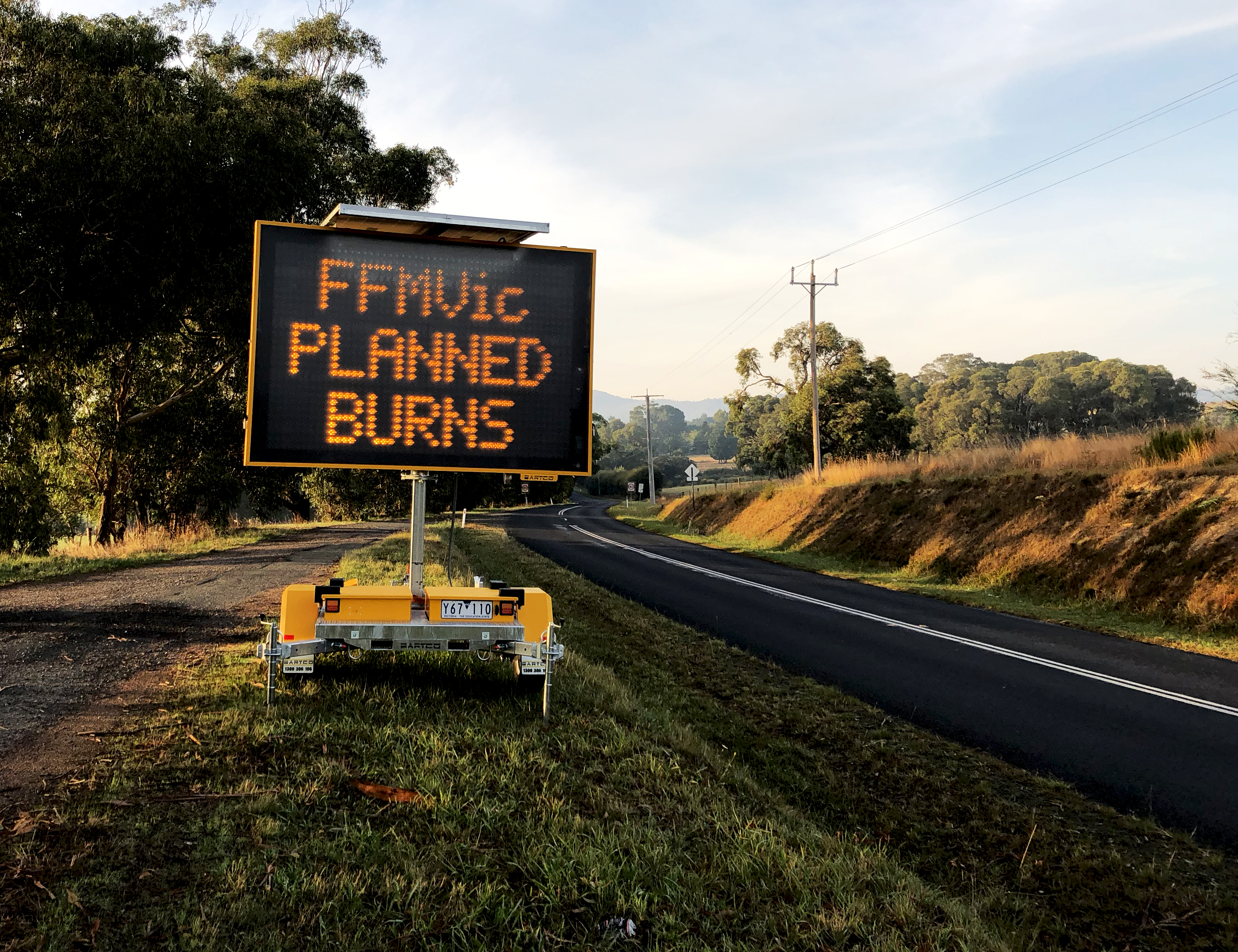
How do organisations manage images to share information and knowledge? The FireLens project is utilising everyday media practices, peer production, mobile and platform technologies to create an image management system for government organisations. Digital photos and videos are composed of imagery, which can communicate complex visual and logistical information.
If you would like to get involved with this project, fill out the form below or reach out to project leaders via the contact info provided alongside each bio.
People
Seth Keen
Lecturer
School: Media and Communication
+61 3 9925 3017
Personal website
seth.keen@rmit.edu.au
Dr Seth Keen is a new media educator, researcher, and designer in the School of Media and Communication. Seth brings together media and co-design practices to engage with contemporary wicked problems. His track record of expertise is in the design of audiovisual media and image-based platforms. He has worked on collaborative projects with academic and industry research partners in the areas of development aid, cultural geography, social services and disaster resilience. Seth is a winner of a prestigious Good Design Australia Award in Social Impact, 2018.
Seth Keen is interested in talking to ARC Linkage collaborators in the areas of Service Design, Computer Science (mobile applications, cloud-based systems) and Bushfire Fuel Management.
FoodCHI 2017
Technologically enabled food futures
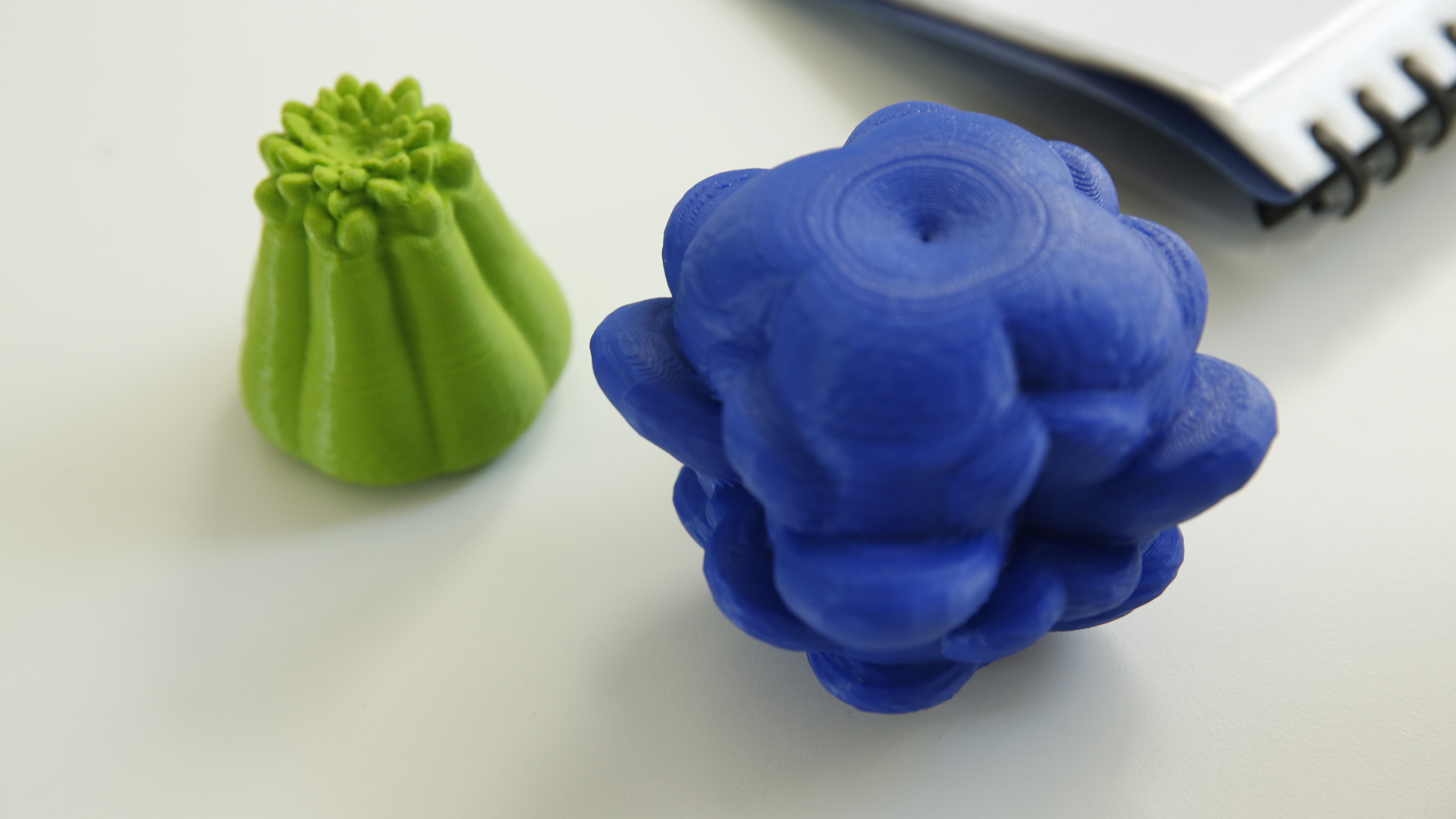
How does design and technology impact food futures? FoodCHI (Computer-Human Interaction) brings together experts and innovators across design, digital media, technology, art, sociology, and food. We examine the role of design and technology in shaping of future foodscapes and work with industry to chart robust approaches for technologically enabled food futures.
Visit the FoodCHI website.
If you would like to get involved with this project, fill out the form below or reach out to project leaders via the contact info provided alongside each bio.
People
Rohit Ashok Khot
Postdoctoral Fellow, Digital Design Cluster
School: Games
+61 3 9925 2594
Personal website
rohitashok.khot@rmit.edu.au
Dr Rohit Ashok Khot is the Deputy Director of the Exertion Games Lab; and Vice-Chancellor’s Postdoctoral Fellow at RMIT University, Australia. Rohit’s research embodies interdisciplinary strength and explores the amalgamation of design and technology in a creative way.
Dr Khot’s track record includes 39 scholarly publications in last 7 years, the majority of which appear in highly competitive HCI conferences and journals and include one best paper and one honorable mention (top 5%) award. Dr Khot’s research also appeared on 30+ press articles including a cover story on Mashable Australia, IEEE Spectrum and TV coverage on Channel 9 News and ABC News 24. He has won prestigious awards including IBM PhD fellowship (2014−2015), 2017 RMIT HDR Prize for Research Excellence (2017), RMIT Vice-chancellor’s Postdoctoral Research Fellowship (2017−2019) and SIGCHI Development Fund Grant (2017,2018). Dr Khot is also involved in organization and management of the Special Interest Group meetings, workshops and symposiums at leading international conferences specifically around food and play, besides serving on program committees for leading international HCI conferences, including DIS and TEI.
Rohit is passionate about playful Human-Food Interaction (HFI) and has an ambitious goal to alter the common perception that food cannot be healthy and pleasurable at the same time.
Games for Change
Designing Games for Social Change
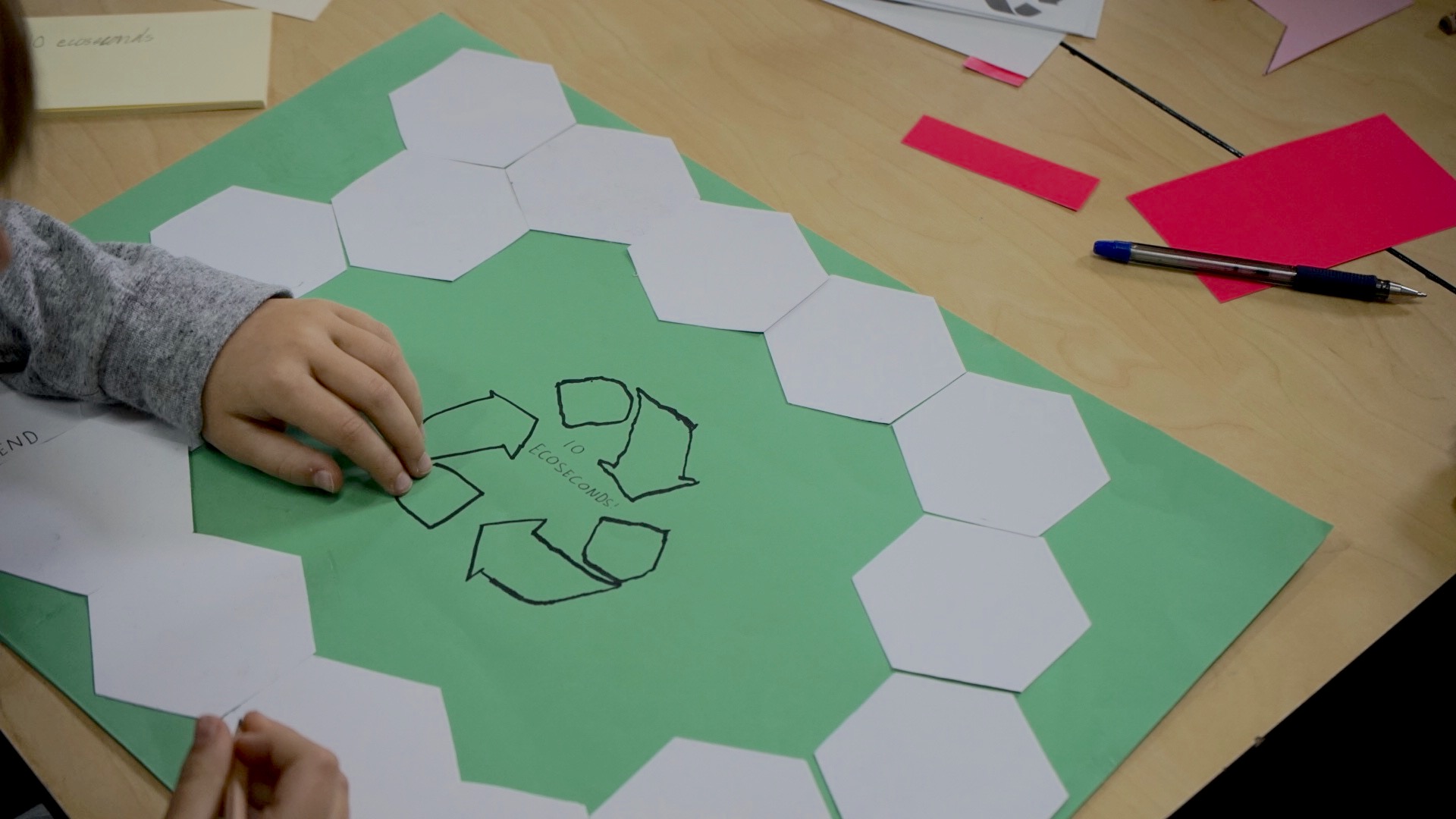
Games for Change takes a play-focused, iteration-based approach to game design. Our first Games for Social Change Workshop saw participants engage in experimental learning and social engagement surrounding a particular topic: ecosystem problems. Young students learnt about game designing and what makes a ‘good’ game. They considered specific environmental issues and then worked together to design and test a game that would help solve that problem.
Game design involves a creative and iterative process guided by prototyping, playing and testing and then refining. Through our Games for Change Workshops we’re making the game design process accessible and actionable for any topic and varying participants.
If you would like to get involved with this project, fill out the form below or reach out to project leaders via the contact info provided alongside each bio.
People
Larissa Hjorth
Distinguished Professor and Director, Design and Creative Practice
School: Enabling Capability Platforms
Larissa Hjorth is a digital ethnographer, artist, Distinguished Professor and director of the Design & Creative Practice ECP platform at RMIT University. With Professor Heather Horst, she co-founded the Digital Ethnography Research Centre (DERC). Previously, Hjorth was Deputy Dean, Research & Innovation, in the School of Media & Communication (2013−2016). Hjorth served on the inaugural Australian Research Council (ARC) Engagement & Impact Pilot study assessment panel for humanities and creative practice.
Hjorth studies the socio-cultural dimensions of mobile media and play practices in the Asia-Pacific region with an emphasis on interdisciplinary, collaborative and cross-cultural approaches. She has published a dozen co-authored books, edited over a dozen Handbooks/Companions and has over 40 journal articles.
More recently, Hjorth’s work has become concerned with how we can bring creative, social and design solutions to the growing ageing populations and, in turn, how we might consider scenarios of what it means to die well. She is also studying how our “more-than-human” companions can teach us about new media in everyday life. Hjorth’s last book, Haunting Hands (Oxford Uni Press) looked at how mobile media is being deployed in situations of grief and trauma, her previous book explored how art practice can teach us new acumen into the climate change debate.
Hjorth’s books include Haunting Hands (with Cumiskey 2017), Screen Ecologies (with Pink, Sharp & Williams 2016), Digital Ethnography (Pink et al. 2016) Mobile Media in the Asia-Pacific (2009), Games & Gaming (2010), Online@AsiaPacific (with Arnold 2013), Understanding Social Media (with Hinton 2013), and Gaming in Locative, Social and Mobile Media (with Richardson 2014).
Hugh Davies
Postdoctoral Research Fellow
School: Games
Hugh Davies is an artist, curator and researcher of games and play. His practice explores histories of media devices and cultures of games in the Asia Pacific Region. Awarded a PhD in Art, Design and Architecture from Monash University in 2014, Hugh’s studies in game cultures have been supported with fellowships from Tokyo Art and Space, M+ Museum of Visual Culture and the Hong Kong Design Trust. Hugh is currently a postdoctoral research fellow at RMIT in Melbourne, Australia.
Gamified Research Translation (GREAT)
Where business research meets gamification to create impact
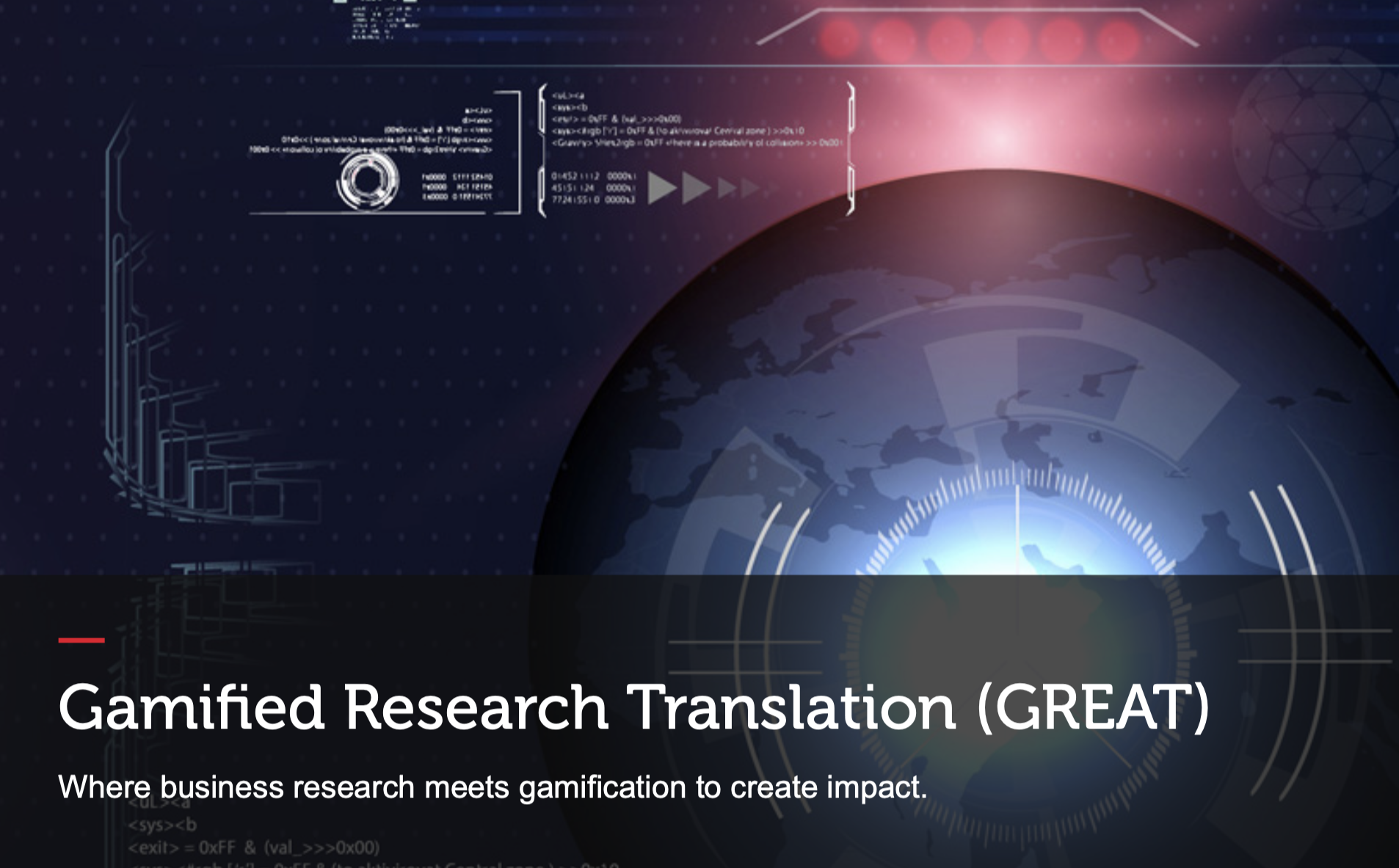
The GREAT challenge
During the last decade, games have become a common part of people’s daily lives. Digital promise of Ed Tech and growing research on gamification has drawn attention to translation of valid science-based research for capability development. Activities and outputs that are not traditionally perceived as game-like are increasingly gamified.
In its most basic form, business research translation with gamification involves multi-disciplinary tasks of taking research findings, human psychology and technology of game-design, and applying them to business contexts — to achieve impact through change in behavior, cognition or emotional states.
However, current business research translation activities tend to rely on traditional academic outputs which may not deliver the intended societal impact — a challenge highlighted at local and international level.
The GREAT mission
Increase awareness and knowledge on gamification of business research. To encourage researcher-industry integration to solve business challenges through games. To foster and deploy a cross-disciplinary network of GREAT experts, specialists and enthusiasts
The GREAT cause
GREAT serves as a catalyst and anchor for capability development and a forum for faculty, specialists and practitioners to develop coherent and collective thought leadership on how might we develop and implement game-based tools and gamification as the means of research translation to achieve societal impact.
The GREAT purpose
The purpose of GREAT is to catalyse meaningful inter-disciplinary knowledge exchange, develop best practices in gamification of business research and increase research-practice integration.
The GREAT call
We have embarked on a meaningful journey of shaping our collective future through gamification of business research.
We cannot do this alone – we need you – your expertise, your experience and your passion for the human side of business.
Find out more about Gamified Research Translation [GREAT] here.
If you would like to get involved with this project, fill out the form below or reach out to project leaders via the contact info provided alongside each bio.
People
Hardik Bhimani
PhD candidate
School: Economics, Finance and Marketing
Hardik Bhimani is a PhD student in the School of Economics, Finance and Marketing and is concurrently completing a Graduate Diploma in Psychology at Monash University. Hardik holds a Masters in Applied Finance from Kaplan Business School (Sydney) and is a member of the prestigious Strategic Management Society.
“Managers face many strategic decisions but they often make unsustainable choices. So the challenge for todays’ firms is – how to effectively make social, environmental and economic choices?”
Prior to joining RMIT, where Hardik currently teaches Strategic Management courses, he was an award winning strategist and subject matter expert at several multinational organisations. It was during this period that he cultivated a curiosity for behavioural strategy. Ultimately, the quest to advance his research found him a ‘home’ at RMIT University’s Behavioural Business Lab.
“The access to supportive supervisors and a team of like-minded critical thinkers means the research journey is not only pleasant, but also engaging.”
Hardik’s research aims to understand the micro foundations of the interplay between social, environmental and economic strategic choices. His mixed-method research takes a behavioural strategy perspective and explains psychological influences, which affect strategic decision-making. In turn, the findings could guide managers’ to effectively de-bias their decision-making process, for a more sustainable strategic choice.
VVet-n-VVild-VVIFI
Holistic Computing Aesthetics Network

VVet-n-VVild-VVIFI aesthetic Research and Development (AR&D) exploring the creative dimensions of internet infrastructure through which artists, technologists and theorists collaborate to address issues of alternative energy, radio transmission, and the future of Wi-Fi technology, as microcontrollers that can be suitably-powered for off-the-grid operation.
VVet-n-VVild-VVIFI explores the innovative capacities and critical implications of computational technology specifically through experiential prototyping and dialogue AR&D to propose alternative net-affinities and rewrite alternatives to avoid any contributing to roadkill of the ‘internet superhighway’. Working towards exhibition series of advanced prototypes for alt-infrastructure networks in 2021 and beyond/VVet-n-VVild-VVIFI is an exemplar of how wireless technology impacts upon traditional exhibition-based practice, radically intervening into public space through the aesthetic application of networking infrastructure in diverse social settings — intimate dens of subnode Intranets, peer to peer networking, autonomous internet beacons that decentre the passage of information and art in diverse social settings, off-grid solar/wind powered.
Find out more about VVet-n-VVild-VVIFI here.
If you would like to get involved with this project, fill out the form below or reach out to project leaders via the contact info provided alongside each bio.
People
Playful Resistance
Finding Creative Pathways of Knowledge Transmission and Translation
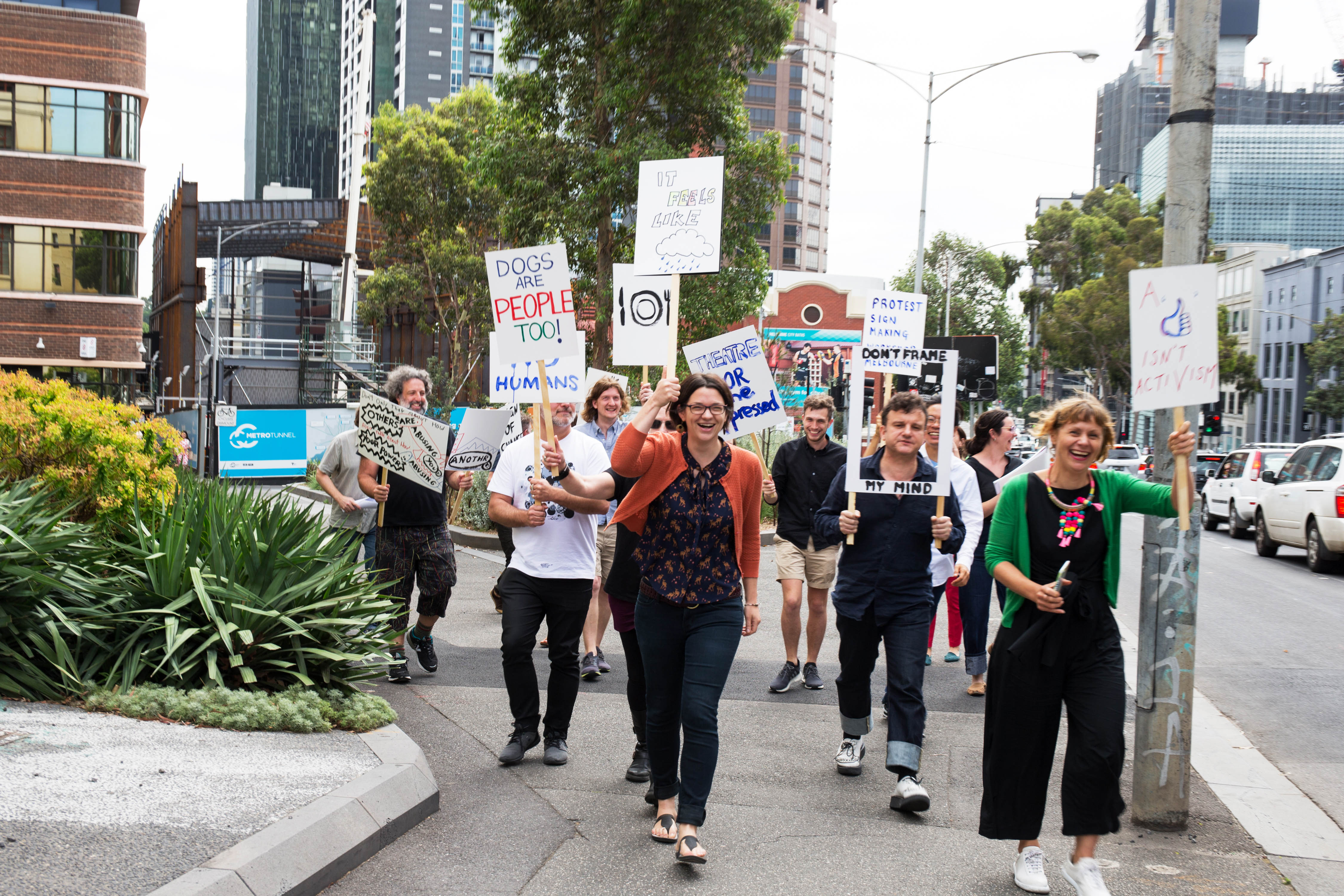
How can playful resistance as a tactic, strategy, mode of inquiry and creative, critical practice be used to intervene on hybrid reality? Exploring creative methods, theories and practices around what it means to think about the “playful” and “resistance” in an age of big data, AI and automation. The project was designed to create new ways of thinking about play and resistance. As real-world issues don’t happen in a discipline — it is important to do interdisciplinary research.
If you would like to get involved with this project, fill out the form below or reach out to project leaders via the contact info provided alongside each bio.
People
Larissa Hjorth
Distinguished Professor and Director, Design and Creative Practice
School: Enabling Capability Platforms
Larissa Hjorth is a digital ethnographer, artist, Distinguished Professor and director of the Design & Creative Practice ECP platform at RMIT University. With Professor Heather Horst, she co-founded the Digital Ethnography Research Centre (DERC). Previously, Hjorth was Deputy Dean, Research & Innovation, in the School of Media & Communication (2013−2016). Hjorth served on the inaugural Australian Research Council (ARC) Engagement & Impact Pilot study assessment panel for humanities and creative practice.
Hjorth studies the socio-cultural dimensions of mobile media and play practices in the Asia-Pacific region with an emphasis on interdisciplinary, collaborative and cross-cultural approaches. She has published a dozen co-authored books, edited over a dozen Handbooks/Companions and has over 40 journal articles.
More recently, Hjorth’s work has become concerned with how we can bring creative, social and design solutions to the growing ageing populations and, in turn, how we might consider scenarios of what it means to die well. She is also studying how our “more-than-human” companions can teach us about new media in everyday life. Hjorth’s last book, Haunting Hands (Oxford Uni Press) looked at how mobile media is being deployed in situations of grief and trauma, her previous book explored how art practice can teach us new acumen into the climate change debate.
Hjorth’s books include Haunting Hands (with Cumiskey 2017), Screen Ecologies (with Pink, Sharp & Williams 2016), Digital Ethnography (Pink et al. 2016) Mobile Media in the Asia-Pacific (2009), Games & Gaming (2010), Online@AsiaPacific (with Arnold 2013), Understanding Social Media (with Hinton 2013), and Gaming in Locative, Social and Mobile Media (with Richardson 2014).
Trades Hall GBV Training Package
Evaluate, Enhance & Embed
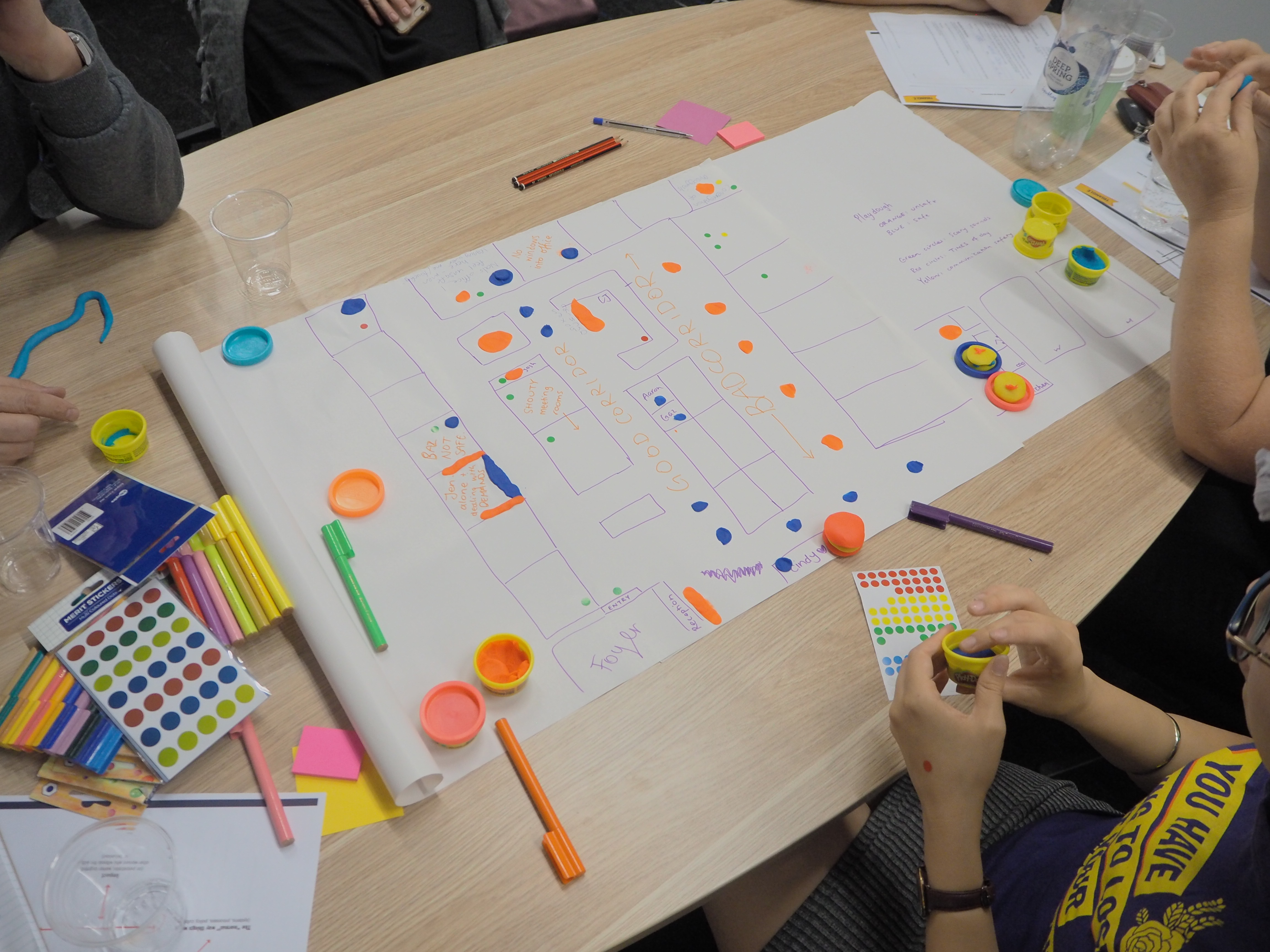
How might we co-design for cultural change for workplaces of the future? How can we co-design with inclusivity at the core? How can we co-create opportunities for social change in workplaces?
This collaboration built on the Victorian Trades Hall Council’s (VTHC) gender-based violence in the workplace training package, designed to advance the rights of people working across Victoria through cultural change towards inclusion, equality, and diversity. The project aim was to have the package evaluated, enhanced and for measurements to be embedded to ensure the aim of the package to change workplace cultures is able to be rolled-out.
To address this aim, the project utilised a series of mixed methods deploying ethnography (interviews and role play scenario case studies), SWOC analysis, multi-sensorial mapping and cultural probes to evaluate, enhance and reflect upon measuring social change.
If you would like to get involved with this project, fill out the form below or reach out to project leaders via the contact info provided alongside each bio.
People
Larissa Hjorth
Distinguished Professor and Director, Design and Creative Practice
School: Enabling Capability Platforms
Larissa Hjorth is a digital ethnographer, artist, Distinguished Professor and director of the Design & Creative Practice ECP platform at RMIT University. With Professor Heather Horst, she co-founded the Digital Ethnography Research Centre (DERC). Previously, Hjorth was Deputy Dean, Research & Innovation, in the School of Media & Communication (2013−2016). Hjorth served on the inaugural Australian Research Council (ARC) Engagement & Impact Pilot study assessment panel for humanities and creative practice.
Hjorth studies the socio-cultural dimensions of mobile media and play practices in the Asia-Pacific region with an emphasis on interdisciplinary, collaborative and cross-cultural approaches. She has published a dozen co-authored books, edited over a dozen Handbooks/Companions and has over 40 journal articles.
More recently, Hjorth’s work has become concerned with how we can bring creative, social and design solutions to the growing ageing populations and, in turn, how we might consider scenarios of what it means to die well. She is also studying how our “more-than-human” companions can teach us about new media in everyday life. Hjorth’s last book, Haunting Hands (Oxford Uni Press) looked at how mobile media is being deployed in situations of grief and trauma, her previous book explored how art practice can teach us new acumen into the climate change debate.
Hjorth’s books include Haunting Hands (with Cumiskey 2017), Screen Ecologies (with Pink, Sharp & Williams 2016), Digital Ethnography (Pink et al. 2016) Mobile Media in the Asia-Pacific (2009), Games & Gaming (2010), Online@AsiaPacific (with Arnold 2013), Understanding Social Media (with Hinton 2013), and Gaming in Locative, Social and Mobile Media (with Richardson 2014).
Jaz Hee-jeong Choi
Vice-Chancellor’s Senior Research Fellow
School: Design and Social Context
Dr Jaz Hee-jeong Choi is a Vice-Chancellor’s Senior Research Fellow at the Digital Ethnography Research Centre at RMIT. Previously, she was a Founding Member and the Director of the QUT Urban Informatics Research Lab, a transdisciplinary research group exploring and designing at the intersection of people, places, and technologies. She also founded the SIGCHI FoodCHI Network.
She is an advocate for transdisciplinary research, carefully balancing creativity and criticality. Her approach to urban sustainability recognises ‘play’ as the core of transformative interactions in cities as complex techno-social networks. She builds on this to explore how various forms of digital and playful experiences are designed and evolve in different cultural contexts. Her current research explores designing with and for care for liveable and equitable urban futures across three inter-related domains: wellbeing and ageing; impactful research methods, and; co-creative urban transformation.
She has collaborated with leading international researchers, published in books and journals across various disciplines, and given invited talks at major international conferences including the inaugural Global Social Economy Forum in 2013 and the opening keynote at the 2010 UNESCO Creative Cities Conference.
Jenny Kennedy
Postdoctoral Research Fellow
School: Design and Social Context
Jenny Kennedy is a Postdoctoral Research Fellow in Media and Communication at RMIT University, Melbourne. Her research interests cover media practices in everyday life, social discourses around technology use and material culture, especially in domestic contexts. She is a core member of the Technology, Communication and Policy Lab in DERC.
She is currently working on projects around digital inclusion, and AI and automation in home environments.
Translating Ambiance
Restorative Sound Design for Urban Soundscapes
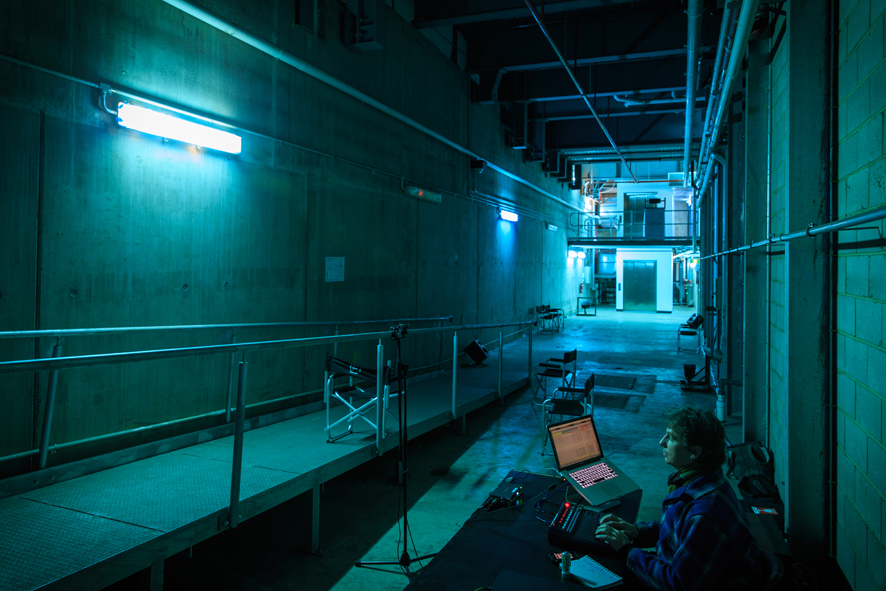
The project expects to produce innovations in the area of urban soundscape design by using an interdisciplinary approach that combines biophilic design, ambiance theory and sound art installation practices. Investigating new techniques for the creation of sound art installations, it hopes to advance the effectiveness of urban renewal initiatives. This should provide significant benefits, such as improving the quality of life in urban centres by producing restful and restorative places and identifying pathways for the involvement of creative practitioners in the design and management of the built environment.
This project was awarded an ARC DECRA.
If you would like to get involved with this project, fill out the form below or reach out to project leaders via the contact info provided alongside each bio.
People
Jordan Lacey
VC Research Fellow
School: School of Design
Dr Jordan Lacey is a transdisciplinary creative practice researcher and DECRA Fellow in the School of Design at RMIT University. He is the author of Sonic Rupture: a practice-led approach to urban soundscape design (Bloomsbury 2016), and various articles, which explore the role of sound installations in transforming urban life. Originally a musician and sound-artist, Jordan has become increasingly focused on the urban environment as evolving into sites-of-encounter that might exceed the typical day-to-day functions of city life. He has produced numerous sound art installations, funded by government and industry partners, that seek to influence approaches to urban design. Recently, he has become interested in posthuman critical theory as a means to question the meaning of being human in a changing world, and the ways in which sonic practices might contribute to this conversation.
Colored and Patterned Solar Building Skin
Solar Panels for Creative and Sustainable Urban Design
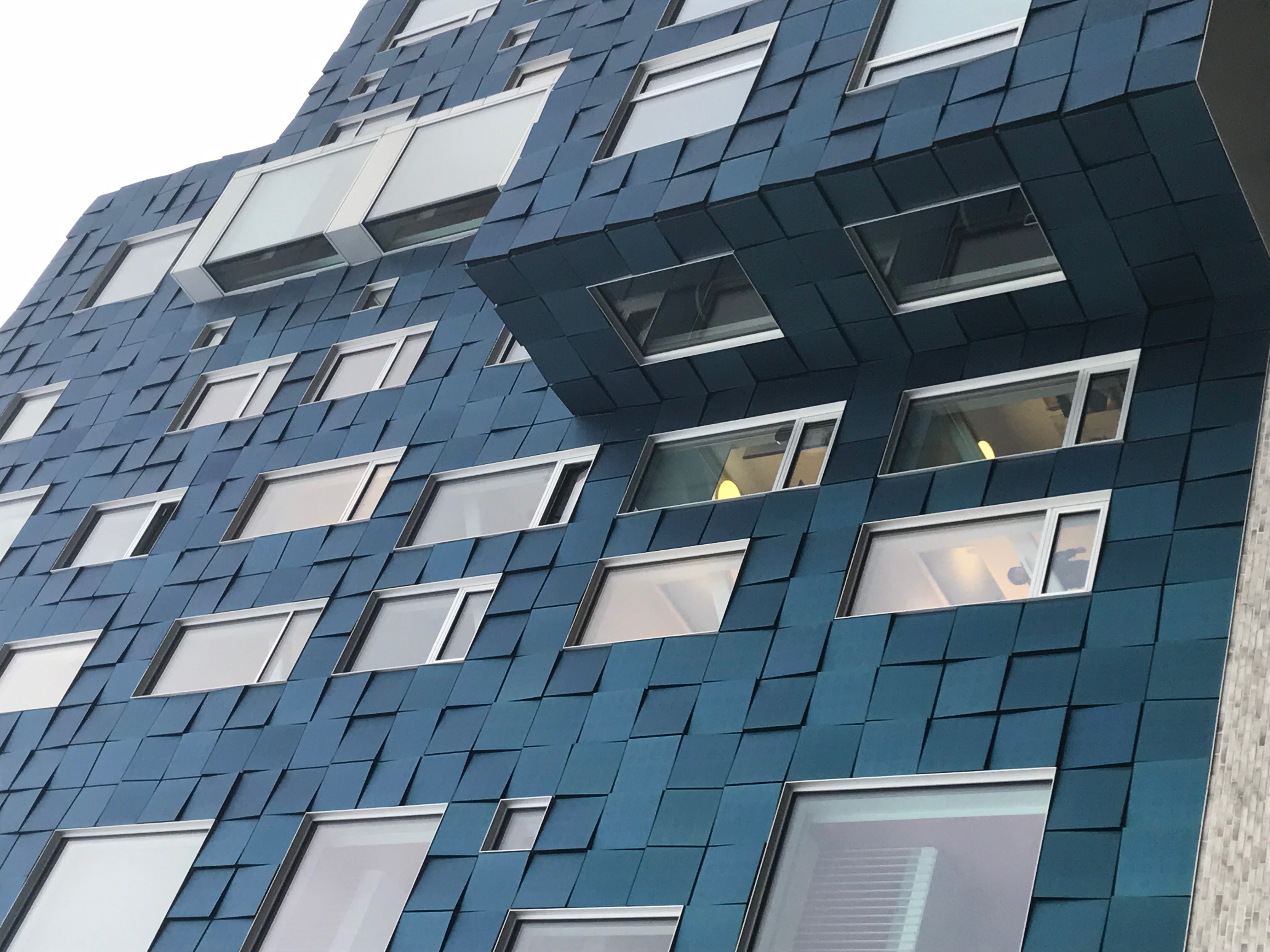
Innovative design of solar modules enables new possibilities for their integration into new and old buildings, historical sites, public urban spaces, landscapes and media façades. When the characteristics of conventional Building Integrated Photovoltaics (BIPV) modules are modified with technological advances in colour and appearance, it opens up a whole new approach to creative, innovative and sustainable urban designs.
RMIT’s Dr Rebecca Yang partnered with City of Bendigo (Aurecon IEA PVPS Task 15 BIPV) for this project to display the approach to using coloured BIPV, wherein good architectural form is given to function and applied to make PV electricity part of our natural and cultural environment. The coloured and patterned solar panels form a paradigm shift in solar applications because of their aesthetic appeal and power generating attributes. These BIPV solutions could be adapted in variety of materials, colours and shapes that can be seen today in the centre of cities, where a diversity of buildings from different eras and construction solutions coexist with each other.
If you would like to get involved with this project, fill out the form below or reach out to project leaders via the contact info provided alongside each bio.
People
Rebecca Yang
Senior Lecturer
School: Construction Management
Rebecca Yang has developed a strong and passionate commitment to industry-focused research and teaching. Her research resonates with RMIT’s vision of transforming the built environment to create sustainable and resilient cities, and her current research focuses on solar energy applications in buildings, and construction innovation. She is the leader of Solar Energy Application Group. She is the leader of Solar Energy Application Group and the Australian expert in International Energy Agency PVPS Task 15 BIPV.
Mixed Reality Environments
Machine Learning Applications for Design and the Built Environment
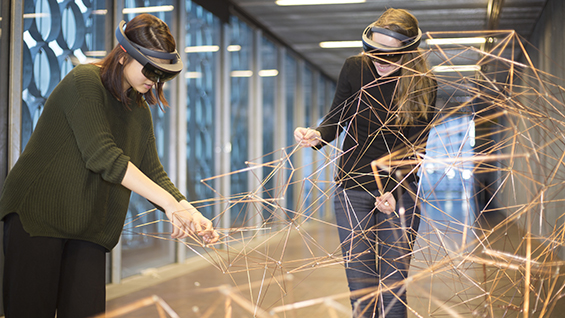
While artificial intelligence (AI) generates real value in many fields, it has seen few design applications. This activity intends to build partnerships with AI experts to implement state of the art machine learning frameworks and cloud computing infrastructure for applications within the design and construction industries. The anticipated outcome are manifold: to position RMIT as a leader in the development of creative applications of AI; to enhance RMIT’s innovation capability by combining the spatial reasoning expertise of architects with cutting edge machine learning capabilities; to develop new and far reaching design applications that may include automated 3d model synthesis, search and classification.
This project aims to develop a platform enabling creatives, consultants and contractors to collaborate within mixed reality environments and test the impact of this platform through speculative and applied design build projects.
If you would like to get involved with this project, fill out the form below or reach out to project leaders via the contact info provided alongside each bio.
People
Cameron Newnham
Associate Lecturer, Industry Fellow
School: Architecture and Urban Design
Cameron Newnham explores how technology and architecture can intersect to extend the art of the possible. Using augmented reality and a deep understanding of architectural practice Cameron is striving to identify how technology can transform architecture and construction, speeding the delivery of complex buildings, and injecting new levels of craftsmanship into the built environment.
Gwyllim Jahn
Lecturer
School: Architecture and Urban Design
Gwyllim Jahn is a Lecturer in the School of Architecture & Urban Design at RMIT in Melbourne where he is currently completing his PhD. His design practice has been internationally awarded and exhibited and is concerned with complex geometry and behavioural design systems, mixed reality environments, autonomous robotic fabrication and creative applications of machine learning.
News and updates
Centre for Innovative Justice Perpetrator Service Mapping – 2018 Good Design Award, Communication Design Print
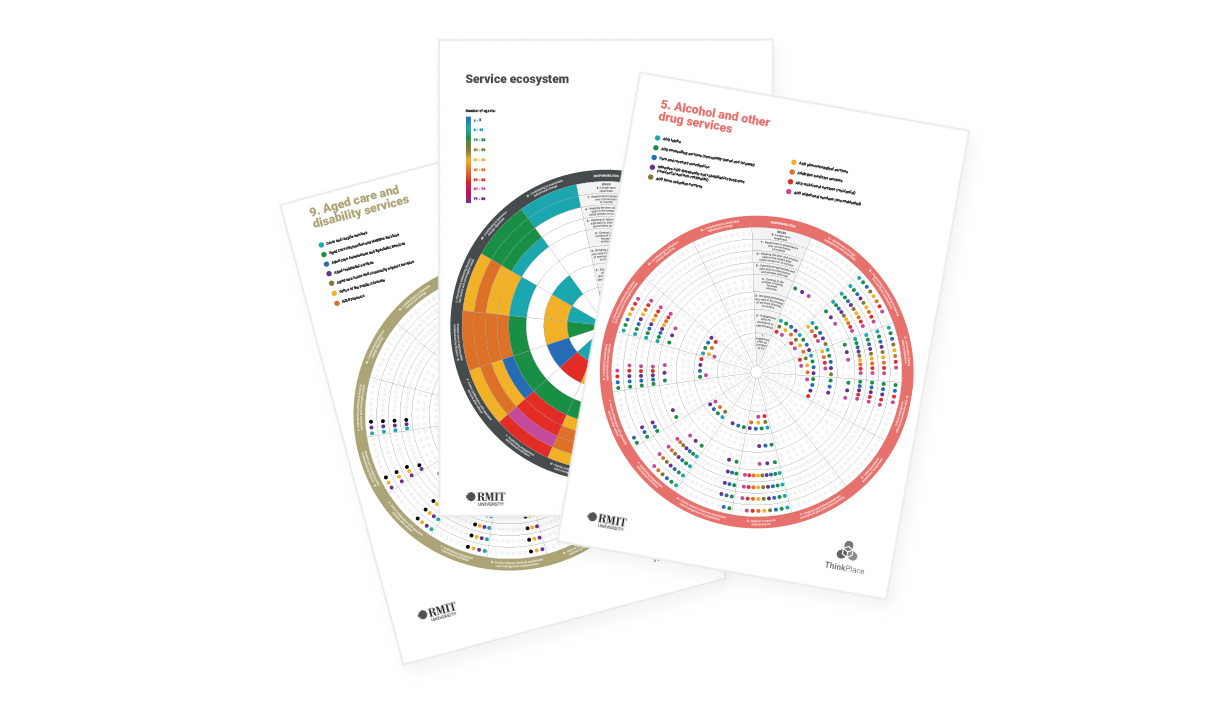
RMIT’s Centre of Innovative Justice worked with ThinkPlace to transform a complex dataset which maps the roles and responsibilities of all government and non-government agencies and service providers who have contact with perpetrators of family violence in Victoria into a stunning set of visualisations. Read more
VC FELLOW HIGHLIGHT: RUTH DE SOUZA
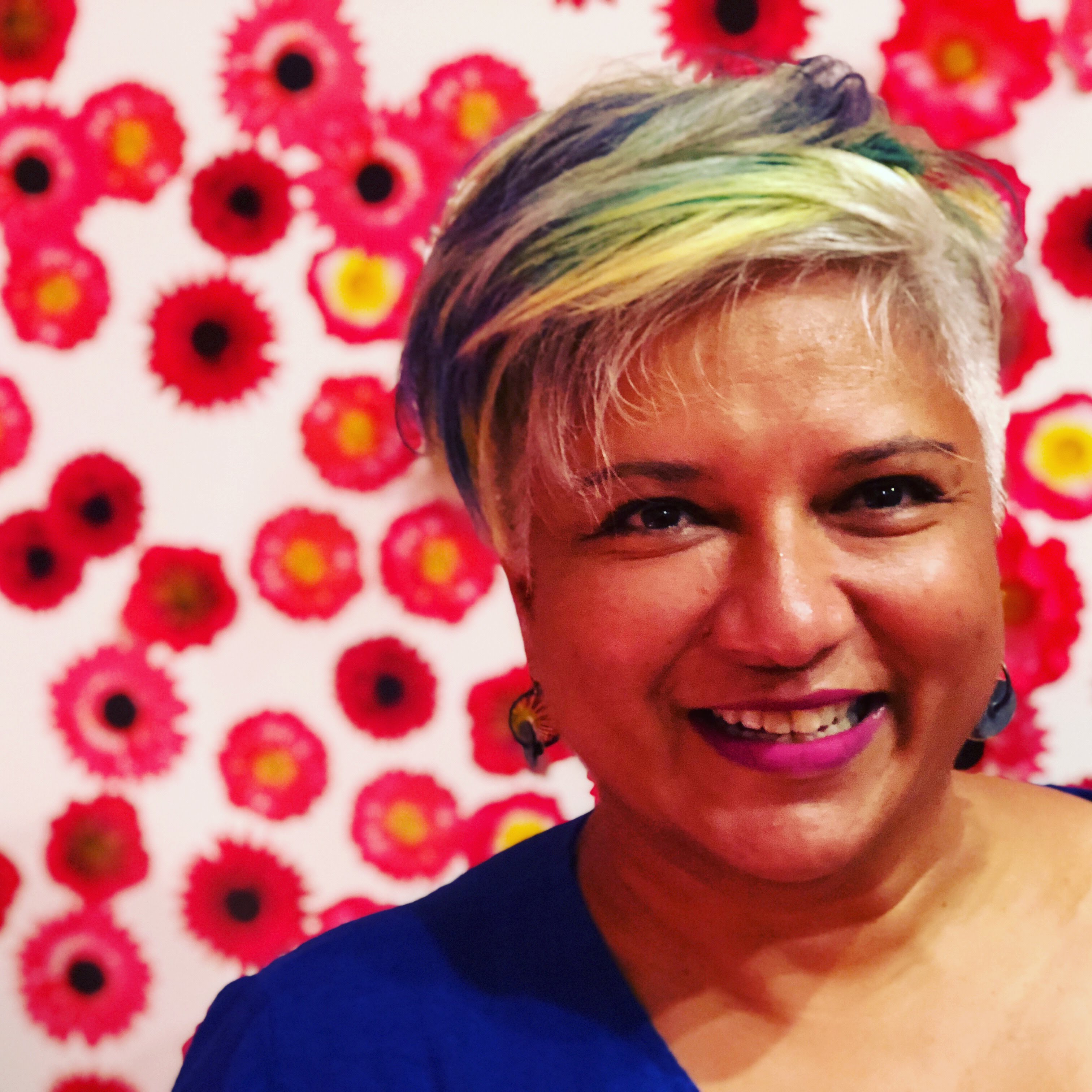
Ruth De Souza
Vice-Chancellor’s Fellow in the School of Art Read more
Being Wiradjuri Together – Winner 2018 Good Design Award, Social Impact
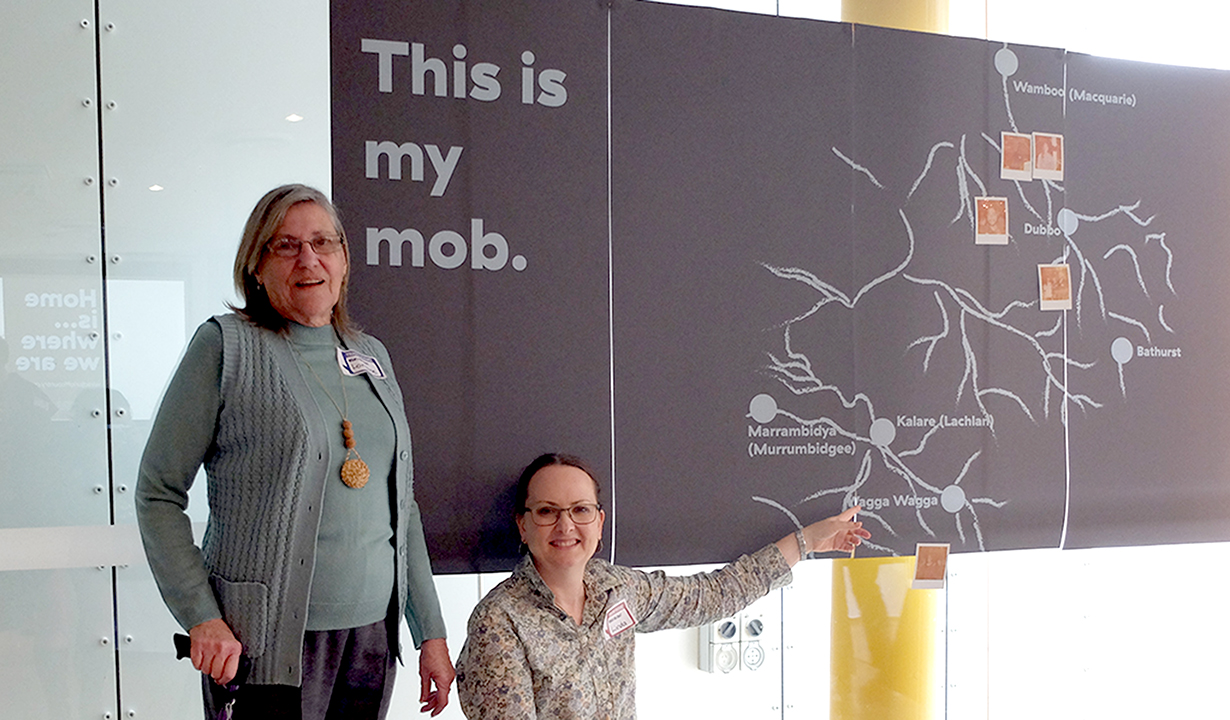
An interactive Wiradjuri-RMIT project is among the winners in the social impact category at the 2018 Good Design Awards. Read more
Facett – Winner 2018 Good Design Award of the Year
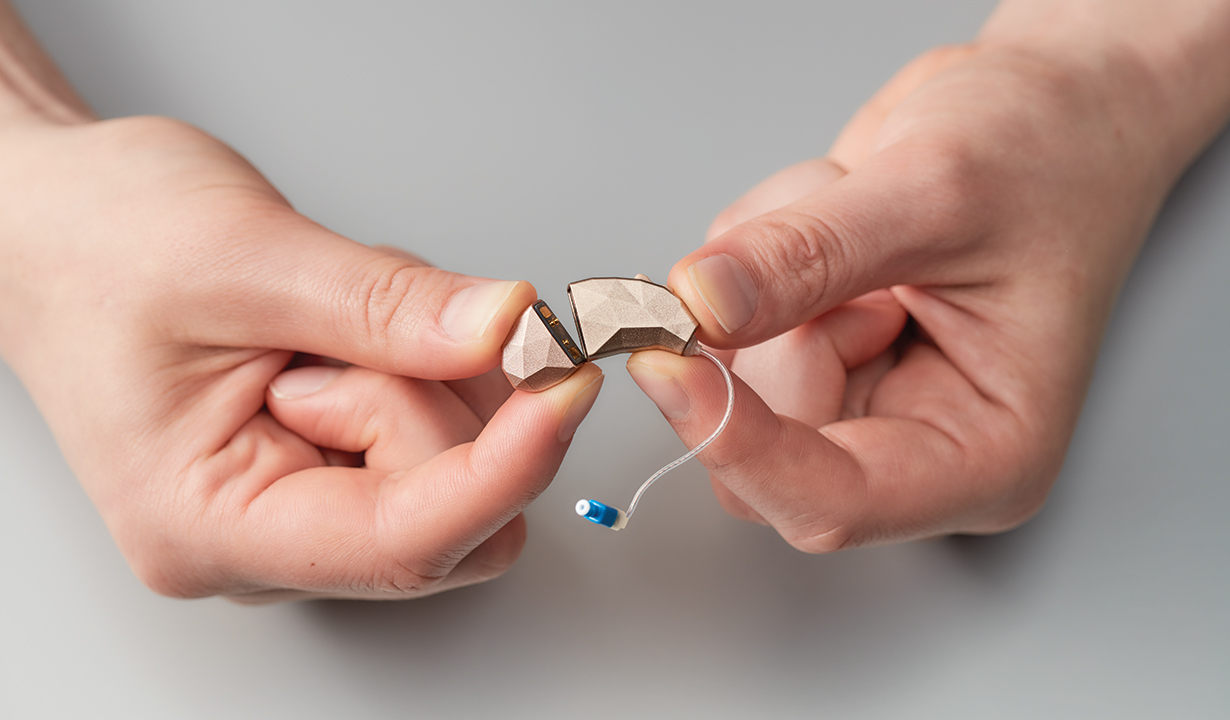
The overall winner of the 2018 Good Design Awards, was Blamey Saunders’ Facett hearing aid, which also took out the CSIRO Design Innovation Award and Best in Class for Product Design and Social Impact. The Blamey Saunders hears Facett hearing aid was designed by Professor Peter Blamey, Yaniv Kaufman and RMIT University’s very own Leah Heiss. Read more
RMIT Europe Workshop: Creative Methods for Social Mapping
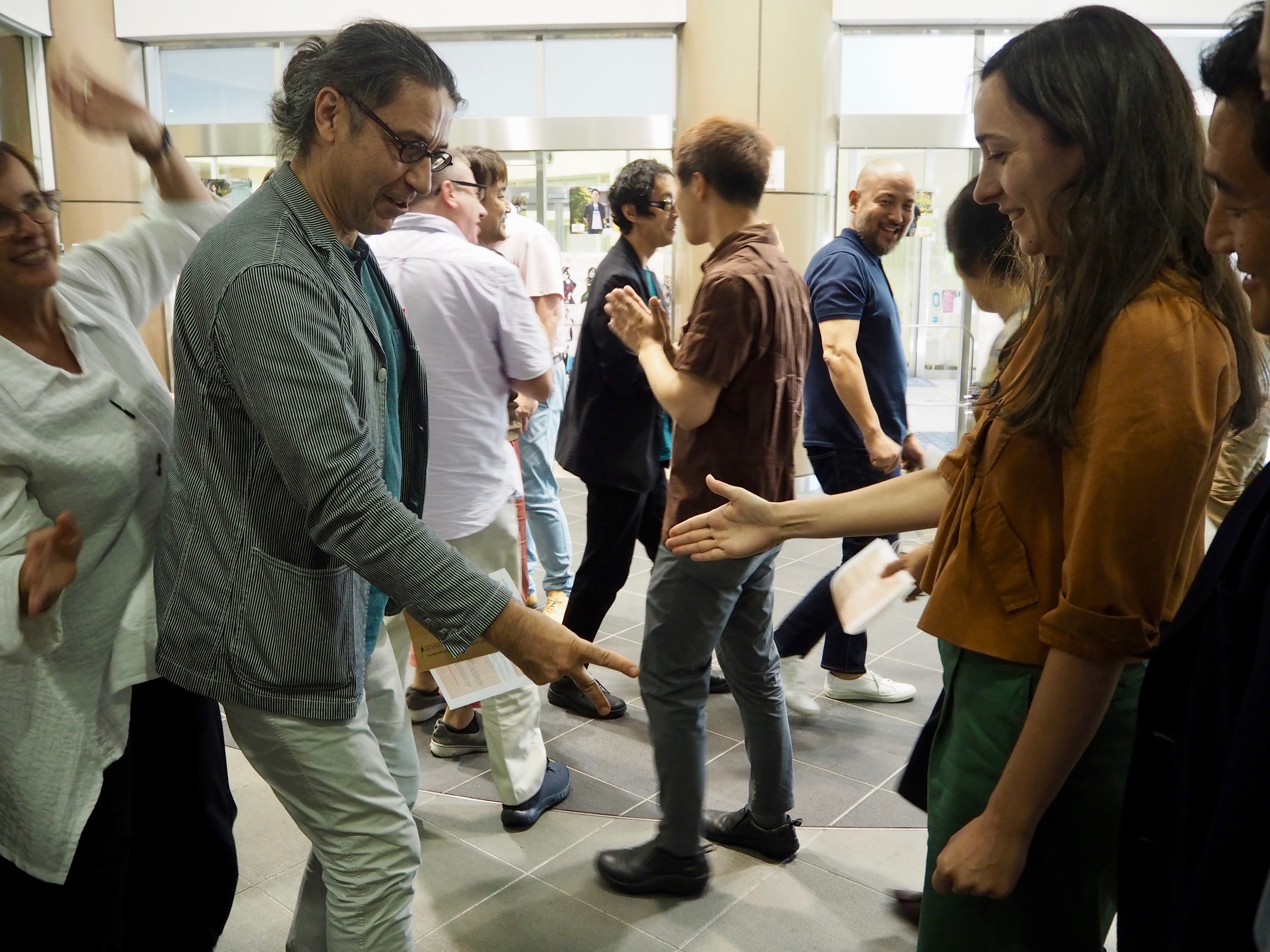
This workshop discusses best practices, provocative elements of, and ideas for the future of creative methods for impactful research. Read more
VC FELLOW HIGHLIGHT: NATALIE HENDRY
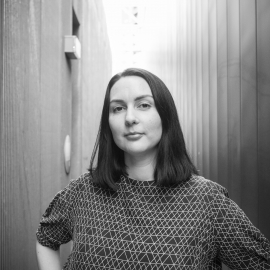
Natalie Hendry
Vice-Chancellor’s Fellow in the School of Media and Communications Read more
WrICE Program Partners with Leading Asian Literary Centre
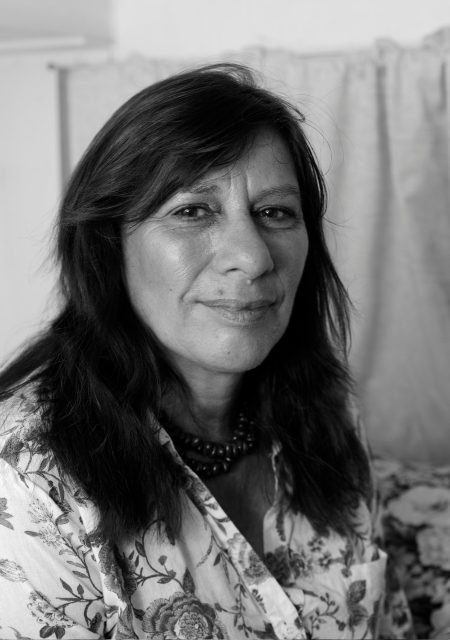
RMIT’s Writers Immersion and Cultural Exchange Program (WrICE), now in its fifth year, will partner with the Jakarta Post Writing Center in 2018. Read more
People
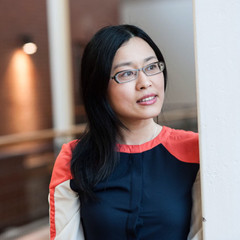
Rebecca Yang has developed a strong and passionate commitment to industry-focused research and teaching. Her research resonates with RMIT’s vision of transforming the built environment to create sustainable and resilient cities, and her current research focuses on solar energy applications in buildings, and construction innovation. She is the leader of Solar Energy Application Group. She is the leader of Solar Energy Application Group and the Australian expert in International Energy Agency PVPS Task 15 BIPV.
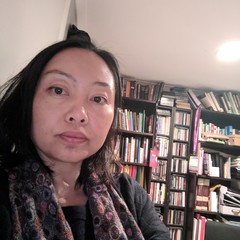
Dr Olivia Guntarik is interested in the relationship between people, places and technologies. She has co-designed and curated place-based cultural walking trails with Indigenous community groups, using mobile apps as self-guided digital tour guides, and as a way to commemorate sites of historical significance. She has led numerous industry-based research projects that bring together writers, artists, designers and digital experts with geographers, sociologists, ethnographers and educators. She was awarded two distinguished Creative Victoria funding initiatives, co-supported through the Department of Education and Training under the Virtual Creative Professionals in Schools program, to provide schools in rural and regional locations with the highest quality creative and digital learning experiences. Research outcomes included the development of interactive mobile apps and site-specific public installations, providing new ways to document and understand user engagement, participation and impact.
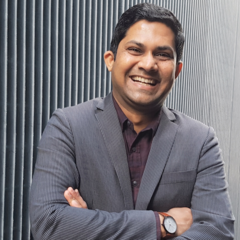
Dr Rohit Ashok Khot is the Deputy Director of the Exertion Games Lab; and Vice-Chancellor’s Postdoctoral Fellow at RMIT University, Australia. Rohit’s research embodies interdisciplinary strength and explores the amalgamation of design and technology in a creative way.
Dr Khot’s track record includes 39 scholarly publications in last 7 years, the majority of which appear in highly competitive HCI conferences and journals and include one best paper and one honorable mention (top 5%) award. Dr Khot’s research also appeared on 30+ press articles including a cover story on Mashable Australia, IEEE Spectrum and TV coverage on Channel 9 News and ABC News 24. He has won prestigious awards including IBM PhD fellowship (2014−2015), 2017 RMIT HDR Prize for Research Excellence (2017), RMIT Vice-chancellor’s Postdoctoral Research Fellowship (2017−2019) and SIGCHI Development Fund Grant (2017,2018). Dr Khot is also involved in organization and management of the Special Interest Group meetings, workshops and symposiums at leading international conferences specifically around food and play, besides serving on program committees for leading international HCI conferences, including DIS and TEI.
Rohit is passionate about playful Human-Food Interaction (HFI) and has an ambitious goal to alter the common perception that food cannot be healthy and pleasurable at the same time.

Joanne Peryman (Laban) is a Lecturer in Economics. She holds a PhD in Economics from the University of Exeter, a Masters in Behavioural Economics from the University of Nottingham, and a BCom (Hons) in Economics from the University of Canterbury. Using mainly experimental methods, Jo’s research focuses on cultural differences in decision making, especially in situations involving uncertainty or risk. She has presented the results from this work at conferences in the UK, The Netherlands, and China. Jo is also keen to apply behavioural insights to policy. During her PhD she completed an internship with a UK Government Department, where she applied ideas from behavioural economics to real-life problems. Her work has attracted funding from the UK’s Economic and Social Research Council, as well as numerous small grants from the University of Exeter’s Behaviour, Decisions and Markets Research Centre.
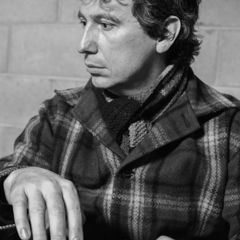
Dr Jordan Lacey is a transdisciplinary creative practice researcher and DECRA Fellow in the School of Design at RMIT University. He is the author of Sonic Rupture: a practice-led approach to urban soundscape design (Bloomsbury 2016), and various articles, which explore the role of sound installations in transforming urban life. Originally a musician and sound-artist, Jordan has become increasingly focused on the urban environment as evolving into sites-of-encounter that might exceed the typical day-to-day functions of city life. He has produced numerous sound art installations, funded by government and industry partners, that seek to influence approaches to urban design. Recently, he has become interested in posthuman critical theory as a means to question the meaning of being human in a changing world, and the ways in which sonic practices might contribute to this conversation.
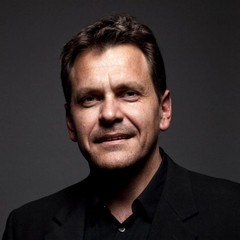
Dr Martyn Hook is Deputy Pro Vice-Chancellor Partnerships in the College of Design and Social Context at RMIT University in Melbourne, Australia. He also holds the position of Dean at RMIT’s School of Architecture & Design alongside his role as Professor of Architecture. In addition to his work at RMIT Martyn is a director of multi award winning iredale pedersen hook architects, a studio practice based in Melbourne and Perth dedicated to appropriate design of effective sustainable buildings with a responsible environmental and social agenda.
Hook has particular expertise in the implementation of strategic vision in creative practice and driving organisational change through the lens of an integrated scholarship model that links teaching and research. Prior to this appointment he was Acting Dean of the School of Architecture & Design and Acting Head of the School of Art.
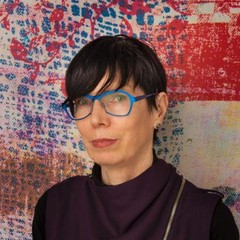
Acclaimed curator and fashion researcher Professor Robyn Healy is Head of RMIT’s School of Fashion and Textiles. Appointed in 2014, she will lead the School through a critical period of change and expansion. Prior to this appointment, Healy held the role of acting Head of School and Deputy Head of Research. She was also previously Program Director of the Bachelor of Design (Fashion) (2009−2012) and HDR Director (2011−2012) in the School of Architecture and Design. Healy has steered the development of the fashion research cohort, and reviewed and restructured the fashion program to facilitate vertically integrated studios, cross-disciplinary studios, and increased industry engagement, particularly with the professional practice stream.
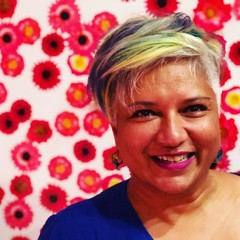
Dr Ruth De Souza (FACN) is a Vice-Chancellor’s Fellow at RMIT, based in the School of Art and DCP Research Platform. She is a nurse, academic and a community-engaged researcher in gender, race, health and digital technologies. Ruth’s Fellowship will engage health professionals in finding new ways to understand, co-design and implement sustainable cultural safety initiatives in a range of health contexts in response to health inequities.
Prior to moving to Australia in 2013, Ruth worked at AUT University where she taught in the School of Nursing, led the Bachelor of Health Promotion, and was a Senior Research Fellow at the Centre for Asian and Migrant Health Research. Since her arrival in Australia, Ruth has undertaken a wide range of roles, including leading an undergraduate nursing program at Monash University’s Berwick campus; spearheading a unique community-engaged joint research appointment with North Richmond Community Health exploring how wearables and other digital technologies are perceived by people from culturally and linguistically different backgrounds and co-ordinating an interdisciplinary Data Systems and Society Research Network across the University of Melbourne. Ruth has also investigated the applicability of cultural safety in Australia, working closely with The Congress of Aboriginal and Torres Strait Islander Nurses and Midwives (CATSINaM), presenting at their National Professional Development Conferences and delivering training on cultural safety. She has also undertaken a two-year cultural safety project with cohealth (a not-for-profit community health organisation) and Our Watch who work for the primary prevention of violence against women and their children.
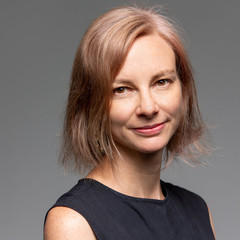
Dr Bronwyn Coate is a Senior Lecturer in the School of Economics, Finance and Marketing who specialises in cultural economics. Bronwyn’s research involves economic analysis of the arts and creative industries using a range of economic and experimental techniques including approaches from behavioural economics and behavioural science. Areas her research has focused upon include art markets, artists/cultural labour, and cultural/creative industries. Much of Bronwyn’s research is undertaken within mult-idisciplinary teams and focused upon addressing issues with policy relevance for the arts and cultural sector. Bronwyn is a member of a number of a number of research groups including the Cultural Value Impact Network (CVIN), Kinomatics Research Group, Behavioural Business Lab (BBL) and Placemaking Economics Research Group. She is also the current Secretary/Treasurer of the Association for Cultural Economics International (ACEI).

Claus-Christian Carbon studied Psychology (Dipl.-Psych.), followed by Philosophy (M.A.), both at the University of Trier, Germany. After receiving his PhD from the Freie Universität Berlin and his “Habilitation” at the University of Vienna, Austria, he worked at the University of Technology Delft, Netherlands and the University of Bamberg, Germany, where he currently holds a full professorship leading the Department of General Psychology and Methodology and the “Forschungsgruppe EPAEG” — a research group devoted to enhancing the knowledge, methodology and enthusiasm in the fields of cognitive ergonomics, psychological aesthetics and Gestalt (see www.experimental-psychology.com and www.epaeg.de for more details). He is the author of more than 400 publications including more than 160 peer-reviewed international journal articles, mainly addressing aesthetics topics, has conducted more than a dozen research projects with a total budget amount of approx. €3 million and a renowned contributor and invited speaker on international research conferences. CCC is Editor-in-Chief of the scientific journal Art & Perception, Section Editor of Perception and i-Perception, Associate Editor of Frontiers in Psychology, Frontiers in Neuroscience and Advances in Cognitive Psychology and a member of the Editorial Boards of Open Psychology, Musicae Scientiae and Leadership, Education and Personality.

Daniel Palmer is Associate Dean of Research and Innovation in the School of Art at RMIT University.
Daniel Palmer’s research and professional practice focuses on contemporary art and cultural theory, with a particular emphasis on photography and digital media. Prior to joining RMIT in 2018, Palmer was Associate Dean of Graduate Research and Associate Professor in the Art History & Theory Program at Monash Art, Design & Architecture. He also has a long association with the Centre for Contemporary Photography in Melbourne, first as a curator and later on the board of management.
Palmer’s book publications include Photography and Collaboration: From Conceptual Art to Crowdsourcing (Bloomsbury 2017); Digital Light (Open Humanities Press, 2015), edited with Sean Cubitt and Nathaniel Tkacz; The Culture of Photography in Public Space (Intellect 2015), edited with Anne Marsh and Melissa Miles; Twelve Australian Photo Artists (Piper Press, 2009), co-authored with Blair French; and Photogenic (Centre for Contemporary Photography, 2005). His scholarly writings on photography and contemporary art have appeared in journals such as Photographies, Philosophy of Photography, Angelaki, Reading Room and the Australian and New Zealand Journal of Art. Palmer has also published over sixty catalogue essays and fifty art reviews since 1997, in art magazines including Art and Australia, Photofile and Frieze.
Palmer has been the recipient of various awards and grants, and has been Chief Investigator on multiple ARC projects, including the ARC Discovery Project ‘Genealogies of Digital Light’ (2008 – 11) with Sean Cubitt and Les Walkling; an ARC Linkage Project ‘Photography as a Crime’ (2009 – 2012) with Anne Marsh, Melissa Miles, Mark Davison and the Centre for Contemporary Photography; and the ARC Discovery Project ‘Curating Photography in the Age of Photosharing’; (2015 – 2017) with Martyn Jolly. Palmer is currently a researcher on the ARC Discovery Project ‘Digital Photography: Mediation, Memory and Visual Communication’ (2020 – 2022) with Scott McQuire, Nikos Papastergiadis, Sean Cubitt and Celia Lury.
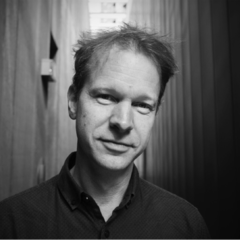
Dr Darrin Verhagen is a senior lecturer in Media and Communication, and runs the Audiokinetic Experiments [AkE] Lab.
Verhagen teaches into the Sound Design specialisation in the Digital Media Program. His work in the AkE Lab uses sound, motion simulators, 4D cinema seating, light and VR to create and audit works that explore the relationship between hearing, vision, movement and vibration. With a background as a soundtrack composer and sound designer for theatre, dance, film and installation, his research interests interrogate the psychophysiology of aesthetic experience, and explore practical applications of such knowledge beyond art.
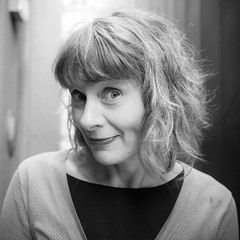
Larissa Hjorth is a digital ethnographer, artist, Distinguished Professor and director of the Design & Creative Practice ECP platform at RMIT University. With Professor Heather Horst, she co-founded the Digital Ethnography Research Centre (DERC). Previously, Hjorth was Deputy Dean, Research & Innovation, in the School of Media & Communication (2013−2016). Hjorth served on the inaugural Australian Research Council (ARC) Engagement & Impact Pilot study assessment panel for humanities and creative practice.
Hjorth studies the socio-cultural dimensions of mobile media and play practices in the Asia-Pacific region with an emphasis on interdisciplinary, collaborative and cross-cultural approaches. She has published a dozen co-authored books, edited over a dozen Handbooks/Companions and has over 40 journal articles.
More recently, Hjorth’s work has become concerned with how we can bring creative, social and design solutions to the growing ageing populations and, in turn, how we might consider scenarios of what it means to die well. She is also studying how our “more-than-human” companions can teach us about new media in everyday life. Hjorth’s last book, Haunting Hands (Oxford Uni Press) looked at how mobile media is being deployed in situations of grief and trauma, her previous book explored how art practice can teach us new acumen into the climate change debate.
Hjorth’s books include Haunting Hands (with Cumiskey 2017), Screen Ecologies (with Pink, Sharp & Williams 2016), Digital Ethnography (Pink et al. 2016) Mobile Media in the Asia-Pacific (2009), Games & Gaming (2010), Online@AsiaPacific (with Arnold 2013), Understanding Social Media (with Hinton 2013), and Gaming in Locative, Social and Mobile Media (with Richardson 2014).
Dr Jenny Robinson is a lecturer in Media and Communication, teaching classes in audience research and strategic communication. Her research is in media psychology, most recently using biometrics and experimental methodology to investigate audience reception of multi-platform advertising models. She is interested in understanding how people respond to mediated communication whether that is TV, online content, public interaction or art.
Robinson brings an interdisciplinary approach to the study of audience experience, with a BA (hons) in psychology and PhD in mass communication, MA in TV and film, and Grad Dip in science communication.
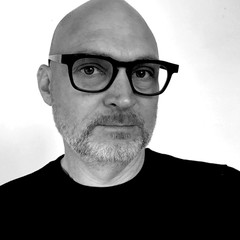
Dr Seth Keen is a new media educator, researcher, and designer in the School of Media and Communication. Seth brings together media and co-design practices to engage with contemporary wicked problems. His track record of expertise is in the design of audiovisual media and image-based platforms. He has worked on collaborative projects with academic and industry research partners in the areas of development aid, cultural geography, social services and disaster resilience. Seth is a winner of a prestigious Good Design Australia Award in Social Impact, 2018.
Seth Keen is interested in talking to ARC Linkage collaborators in the areas of Service Design, Computer Science (mobile applications, cloud-based systems) and Bushfire Fuel Management.
Botanist, quantitative plant ecologist; Research Fellow, ICON Science, Centre for Urban Research, RMIT University Melbourne. Freya is a plant ecologist working as a Research Fellow at RMIT on an ARC-Linkage project which focuses on designing urban green spaces for human wellbeing and for biodiversity.
Freya is a botanist whose professional work has spanned many Australian ecosystems and she has a thorough knowledge of Australian native flora. Her PhD focused on building and evaluating quantitative predictive models of plant growth. She also has experience working for the State Government on developing and implementing long term vegetation monitoring programs. Her current research at RMIT focuses on evaluating how urban green spaces influence human wellbeing but also how plant choice in cities influences other organisms like birds, bees and butterflies. Freya is passionate about plants and interested in various ways plants can be wholly appreciated and incorporated into urban areas.
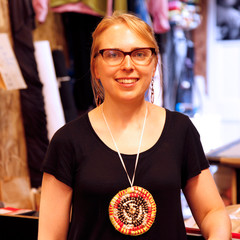
Grace is a published art historian, curator and artist with expertise in contemporary art and design, public art, social practice, social enterprise and community development.
Grace’s research challenges and transforms conventional understandings of the relationship between margin and centre in relation to the cultural economy, contemporary art practice and art history. She has pioneered work on the field of art-based social enterprise in Australia, and has worked extensively in migrant and refugee settlement. She has a multidisciplinary approach that engages with a range of fields including art, design, architecture, sustainability, sociology, business and international development. In addition, through her leadership of the CAST research group, she collaborates with industry and across disciplines to develop research projects that address issues of access, equity and justice.
Grace is a Chief Investigator on the ARC Discovery Project ‘The underworld: outsider artists and the reformulation of Australian art,’ (2018−2020) and the ARC Discovery Project ‘Art-based Social Enterprises and Marginalised Young Peoples Transitions,’ (2017−2019). She has published numerous articles in refereed and unrefereed publications, published creative works in literary journals, authored exhibition catalogues and worked as an editor on local newspapers and engaged widely with local and national media. Grace is the founding CEO & a current Board Director of The Social Studio, a fashion and art based social enterprise working with young people from humanitarian migrant backgrounds in Melbourne.
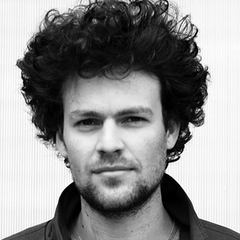
Gwyllim Jahn is a Lecturer in the School of Architecture & Urban Design at RMIT in Melbourne where he is currently completing his PhD. His design practice has been internationally awarded and exhibited and is concerned with complex geometry and behavioural design systems, mixed reality environments, autonomous robotic fabrication and creative applications of machine learning.
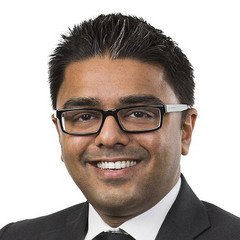
Hardik Bhimani is a PhD student in the School of Economics, Finance and Marketing and is concurrently completing a Graduate Diploma in Psychology at Monash University. Hardik holds a Masters in Applied Finance from Kaplan Business School (Sydney) and is a member of the prestigious Strategic Management Society.
“Managers face many strategic decisions but they often make unsustainable choices. So the challenge for todays’ firms is – how to effectively make social, environmental and economic choices?”
Prior to joining RMIT, where Hardik currently teaches Strategic Management courses, he was an award winning strategist and subject matter expert at several multinational organisations. It was during this period that he cultivated a curiosity for behavioural strategy. Ultimately, the quest to advance his research found him a ‘home’ at RMIT University’s Behavioural Business Lab.
“The access to supportive supervisors and a team of like-minded critical thinkers means the research journey is not only pleasant, but also engaging.”
Hardik’s research aims to understand the micro foundations of the interplay between social, environmental and economic strategic choices. His mixed-method research takes a behavioural strategy perspective and explains psychological influences, which affect strategic decision-making. In turn, the findings could guide managers’ to effectively de-bias their decision-making process, for a more sustainable strategic choice.
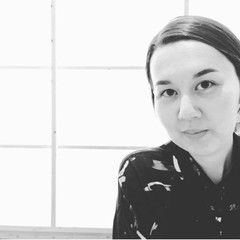
Jacina Leong is an artist-curator and PhD candidate in the School of Media and Communications, RMIT. Her research explores critical-creative and careful curatorial approaches to social innovation practices by museums and galleries.
Over the past decade, she has worked in hybrid new media spaces, universities, national and international festivals, regional museums and galleries, libraries and schools — to vision and deliver a diverse range of trans-disciplinary engagement programs, via highly collaborative, experimental and site-responsive processes. Most recently, Jacina was curator for Robotronica, project lead and founding member of the Guerrilla Knowledge Unit, guest facilitator of the Future Innovators Summit (Ars Electronica Tokyo Initiative), and co-curator of the provocation, Curating In The Age of Automation (RMIT & Ritsumeikan University, Kyoto).
From 2012 to 2017, Jacina worked at The Cube (QUT), establishing the inaugural STEAM engagement program for school and university students, educators and pre-service teachers. This program involved key collaborations with local, national and international organisations including Ars Electronica, LEGO Education, and Brisbane City Council. She has also worked in public program development at the Ipswich Art Gallery, collaborative learning strategy in universities, gallery management at Jan Murphy Gallery, and was advisor to the inaugural Make Nice at VIVID Festival.
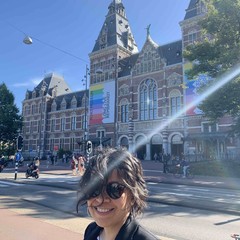
Jacinthe Flore is a Vice-Chancellor’s Postdoctoral Research Fellow in the Social and Global Studies Centre at RMIT University. She is an interdisciplinary scholar whose research lies at the intersections of technology, health and society. With a particular interest in digital mental health, Jacinthe’s research examines the social and policy implications of innovations such as artificial intelligence, apps, wearables and fourth generation pharmaceuticals, and their circulations in people’s everyday lives.

Currently undertaking a PhD in Design at RMIT School of Design, Jacob explores socially engaging technology in later life and its shaping by designers. Approaching design research through investigating the materiality of artifacts, and our interactions with them, Jacob seeks to uncover social-technical practices through dialogical and anthropological means.
Alongside his doctorate research, Jacob is involved in ‘Co-designing Participatory Strategies With Older Adults ‘ (Shaping Connections) and ‘Enabling an Ageing Workforce’ (Safeness by Design) research projects. As a sessional lecturer in Design Studies, Jacob hopes to foster research-led and collaborative design practices in socially complex contexts. With a diverse background in the design industry, he is interested in locating design research practice in wider discourses and interrogating its impact.
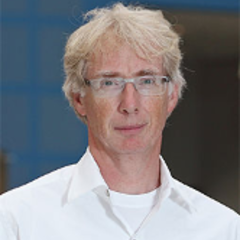
Dr. Jan Schoormans (1956) is a Professor of Consumer Behaviour at the Faculty of Industrial Design Engineering, Delft University of Technology, Delft, the Netherlands. His research focuses on consumer preferences and behavior towards (the design of) new products. He has published on these topics in marketing journals like the International Journal of Research in Marketing, Psychology and Marketing, the Journal of Product Innovation Management, in psychological journals like Perception and the British Journal of Psychology, in engineering journals like Applied Energy, Journal of Cleaner Production, and in design journals like Design Studies, Journal of Engineering Design and the Design Journal.

Janneke Blijlevens is a Senior Lecturer in Design Thinking and Experimental Methods within the Marketing Discipline. With a Masters in Psychology, a PhD in consumer behaviour and design, and work experience in both design and business schools her research is truly interdisciplinary. Janneke uses her ability to understand different ways of thinking to design innovative solutions to complex societal and business problems. Her approach uses behavioural insights obtained in both qualitative and quantitative research to affect positive behaviour change in society. Her research covers areas such as product (design) perception and evaluation by consumers, the social roles that products can play to consumers, how to design products for social change, and psychological factors influencing the adoption of highly innovative products by consumers. She has published in top-tier academic journals such as Psychology & Marketing, International Journal of Design, Acta Psychologica, British Journal of Psychology, Journal of Psychology in Aesthetics, Creativity, and Arts, and Journal of Design, Business and Society. The project ‘Sans Forgetica, a font to remember (sansforgetica.rmit)’ gained world-wide acclaim.

Dr Jaz Hee-jeong Choi is a Vice-Chancellor’s Senior Research Fellow at the Digital Ethnography Research Centre at RMIT. Previously, she was a Founding Member and the Director of the QUT Urban Informatics Research Lab, a transdisciplinary research group exploring and designing at the intersection of people, places, and technologies. She also founded the SIGCHI FoodCHI Network.
She is an advocate for transdisciplinary research, carefully balancing creativity and criticality. Her approach to urban sustainability recognises ‘play’ as the core of transformative interactions in cities as complex techno-social networks. She builds on this to explore how various forms of digital and playful experiences are designed and evolve in different cultural contexts. Her current research explores designing with and for care for liveable and equitable urban futures across three inter-related domains: wellbeing and ageing; impactful research methods, and; co-creative urban transformation.
She has collaborated with leading international researchers, published in books and journals across various disciplines, and given invited talks at major international conferences including the inaugural Global Social Economy Forum in 2013 and the opening keynote at the 2010 UNESCO Creative Cities Conference.
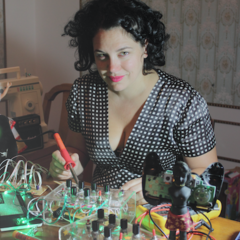
Nancy Mauro-Flude is an artist and theorist. Administer of a home-brewed feminist web server, she leads the Holistic Computing Network Research group and practices experiential pedagogy, in her role as coordinator Emerging Digital/Media Cultures, Bachelor of Design (Digital Media), College of Design and Social Context at RMIT University. Mauro-Flude’s research contributes to the interdisciplinary space of feminist science and technology studies, computer subculture and performance art. Her artworks radically intervenes into public space by the aesthetic application of networking infrastructure, playfully and critically she experiments with signal transmission in order to draw upon contested knowledges and advance broader understandings emergent technologies as they arise as key actors in our embodied life.
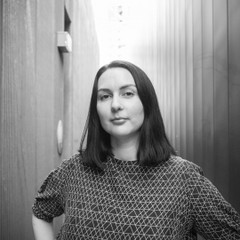
Natalie Hendry is a Vice Chancellor’s Postdoctoral Fellow in the School of Media and Communications. Her research explores everyday social media and digital technology practices in the context of critical approaches to education, mental health, media, wellbeing, youth studies and policy. This brings together her experience prior to academia, working in community education, secondary schools and hospital settings, and consulting for health organisations and industry. Using digital ethnography and creative workshop methods, her postdoctoral research explores emerging and potential online opportunities to enhance digital outreach and media-based support for young people whose parents or adult family members are experiencing mental ill-health.
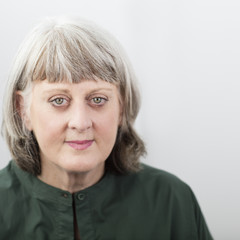
Professor Laurene Vaughan is Dean of the School of Design at RMIT. She is internationally recognised as a leader in interdisciplinary and applied design research and pedagogy. Professor Laurene Vaughan has a diverse research and teaching practice covering the areas of design, communication, fashion and embedded research in diverse industry sectors. Laurene currently also contributes to the University research community through being a Research Leader in the RMIT Design Research Institute.
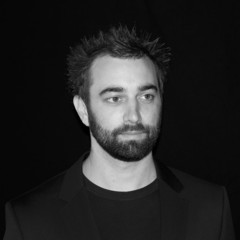
Associate Professor Roland Snooks is a founding partner of Kokkugia and director of Studio Roland Snooks. He holds a B.Arch from RMIT University and a Master in Advanced Architectural Design from Columbia University where he studied on a Fulbright scholarship. Roland’s PhD (RMIT University) and current research is focused on establishing a methodological and conceptual basis for a behavioral approach to design. An algorithmic strategy drawing from the logic of swarm intelligence and operating through multi-agent algorithms. He is a senior lecturer at RMIT University where he directs the Architectural Robotics Lab having previously taught widely including at Columbia, University of Pennsylvania, SCI-Arc, Pratt Institute, UCLA, and USC. Roland has taught masterclasses, lectured and been an invited critic at institutions including Harvard, Yale, Aalto University, Milano Politecnic and the Architectural Association (AA.DRL).

Shelley is the Director of the Business and Human Rights Centre at RMIT University, Melbourne, Australia.
Shelley has undertaken empirical research on these topics in diverse countries, including Bulgaria, India, Indonesia, Australia and Cambodia, and has published widely based on her findings. Her high standing as a scholar has been recognised through the award a number of large multi-country grants, and she has undertaken collaborations with scholars from Cambridge University, Harvard University, Melbourne University and RMIT. Dr Marshall’s long term partnerships with the technical arm of the International Labour Organisation, Oxfam Australia and CORE UK have enabled her to produce research of a highly applied nature, which has had a strong policy influence and provided meaningful lessons for business and other relevant organisations. Likewise, Shelley’s leadership on the Steering Committee of the Australian Corporate Accountability Network has provided opportunities to influence Business and Human Rights policy in Australia.
Dr Marshall holds a Bachelors of Arts with a double major in Social Theory and Political Science and a Bachelor of Law from the University of Melbourne. She studied a Masters of Science in Development Studies at the London School of Economics and Political Science, where the focus was on economic policy. In 2015, she was awarded a Doctor of Philosophy in Regulation Justice and Diplomacy which she undertook at the RegNet School of Regulation and Global Governance, Australian National University under the supervision of Peter Drahos, Valerie Braithwaite and John Braitwaite. Dr Marshall is a Vice Chancellor’s Senior Research Fellow at RMIT University and an Australian Research Council DECRA Research Fellow.
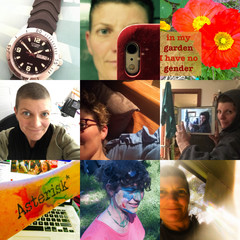
Son Vivienne is a Post-Doctoral Researcher at Creative Agency and the Digital Ethnography Research Centre at RMIT. Their principal expertise is digital self-representation, online activism, queer identity, and rhetorical strategies/feminist practices for speaking and listening across difference. Son is also involved in community development and arts as an activist, workshop facilitator and media-maker. Son is author of Digital Identity and Everyday Activism: Sharing Private Stories with Networked Publics (Palgrave Macmillan) and co-author/co-editor of Negotiating Digital Citizenship: Control, Contest, Culture (Rowman & Littlefield).
Son curates several collective storytelling websites for queer and gender-diverse communities and has over twenty years of multi-media production and distribution experience. As an award winning writer/director/producer of drama and documentaries, they tackled subjects as diverse as youth suicide; drug cultures in Vietnamese communities; and lesbian personal columns. Their film work includes multi-lingual (Vietnamese-English and Adnyamathanha-English) and multi-modal (animation, micro-docs, digital storytelling and interactive web-platforms) projects that reflect their comparative, cross-cultural and critical approaches to communication and storytelling.
